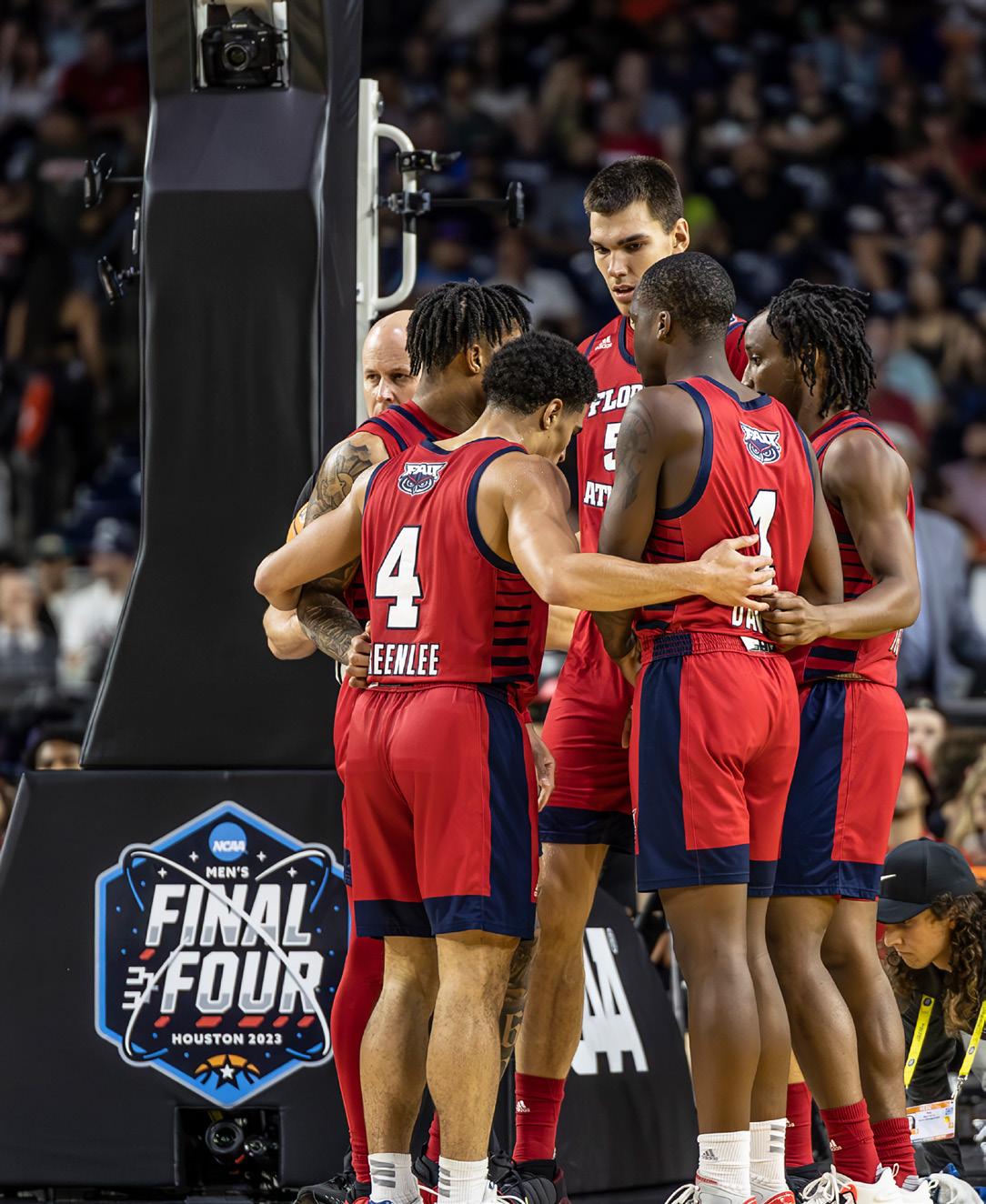Creating Generational Change
FLORIDA ATLANTIC ’S AWARD-WINNING PROGRAMS ARE PREPARING STUDENTS FOR SCHOL ASTIC AND CAREER SUCCESS



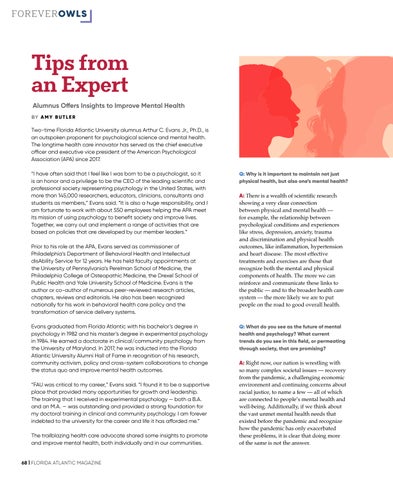
FLORIDA ATLANTIC ’S AWARD-WINNING PROGRAMS ARE PREPARING STUDENTS FOR SCHOL ASTIC AND CAREER SUCCESS



elcome to Florida Atlantic magazine! It is my pleasure to introduce the spring 2023 issue.
I became interim president of Florida Atlantic in January, and I am living proof of this great university’s ability to propel students toward scholastic and career success.

As a proud first-generation college graduate and a three-time alumna, I was given the confidence to achieve whatever I put my mind to because of Florida Atlantic.

My ties to Florida Atlantic run deep. My family moved to South Florida from Poughkeepsie, New York, when I was 9 years old. As a child, I would frequent FAU’s Wimberly Library; and like many members of our community, I learned to drive on the Boca Raton campus parking lots as a teenager. I joined Florida Atlantic’s business services staff in 1991 and climbed the ranks to chief operating officer and vice president of administrative affairs.
It is my great honor to lead our talented faculty, staff and students through this period of transition — and share their many awards, accolades, discoveries and other successes with you in the following pages. Owls are leading the way in research and innovation, creativity, economic development, and service to our local and global communities, and I hope you enjoy learning more about them in this issue of Florida Atlantic magazine.
Go Owls!
Stacy Volnick, Ph.D. PresidentWriters and Editors
Bethany Augliere, Amy Butler, Cammi Clark, Alyse Cooke, Anne Fennimore, Gisele Galoustian, Denise Gravatt, Amy Haycock, Katrina McCormack, Lisa Metcalf, Joe Murray, Paul Owers, Scott Silversten
Photographers
Chad Beattie, Jewel Beneby, Chelsea Bennice, Ph.D., Stephanie Bihr, Randy Blakely, Ph.D., Brian Burkard, Katarzyna Bytnar, Delray Medical Center, Alex Dolce, Michael Gil, Ph.D., Clark Morgan, Ralph Notaro, Matt Pearce, Dana Pearl, Joe Pye, JC Ridley, Roy, Paige Russo, Eduardo Schneider, H. Forrest Thomas, Timothy Steigenga, Jeffrey Tholl, Rick Yeatts iStock.com: AaronAmat, Benjavisa, Borislav, Khanisorn Chaokla, Joaquin Corbalan, Divepic, Valerii Evlakhov, everythingpossible, ipopba, Koldunov, ktsimage, Mihajlo Maricic, monsitj, Sylverarts, szeyuen, Phoebe-Yu

Design and Graphics
Crystal Bacchus, Craig Korn, Irina Weiner



FAU Researchers Working to Save Reefs
More than half a billion people depend on the fisheries, storm surge protection, ecotourism and other resources provided by tropical coral reefs. Although these communities care deeply about the fate of the reefs, they often lack the scientific tools to document changes in them — until now.

Florida Atlantic researchers are part of a team that received a fiveyear, $3 million grant from the National Science Foundation for a project to empower community members already interested in coral reef health with the tools needed to document changes in the reefs. Findings will help to inform management of these ecosystems.
Among the prevailing theories for the global decline of the reefs is that the loss of herbivorous fishes through environmental change causes algae to outcompete corals, leading to the collapse of previously thriving coral ecosystems.
However, how herbivory emerges in these ecosystems is poorly understood, said Ashkaan K. Fahimipour, Ph.D., co-principal investigator and assistant professor in the Department of Biological Sciences in FAU’s Charles E. Schmidt College of Science. Ultimately, he said, it depends on many different types of interactions occurring between fish that are simultaneously competitors and mutualists.
To help measure the interactions and impacts, researchers will work with local stakeholders, such as fishing cooperatives, grassroots conservation groups and tour operators, to identify the metrics of reef health that are most relevant to them, and will provide them with small, handheld camera observatories so that they can contribute to the monitoring effort. Results will help researchers understand how herbivory rate at the ecosystem scale emerges, responds to environmental change and shapes the ecosystem.
A unique partnership between the FAU Harbor Branch Oceanographic Institute and Thermo Fisher Scientific, the world leader in serving science, will enable researchers to advance marine science and conserve endangered species worldwide from the tropics to the Arctic.

As part of the public-private collaboration, Thermo Fisher is helping FAU Harbor Branch’s efforts by supporting development of a laboratory infrastructure that includes the latest genetic analysis platforms, which are essential to advance studies on marine ecosystems at the molecular level. FAU Harbor Branch will assess Thermo Fisher’s technology and provide feedback on how the platforms may be optimized for applications in the fields of marine science and species conservation.
“We needed to replace our laboratory’s workhorse, the Applied Biosystems 3130 Genetic Analyzer. However, it was challenging to find the funding to replace this critical tool,” said Greg O’Corry-Crowe, Ph.D., a research professor at FAU Harbor Branch and leader of the Wildlife Evolution and Behavior program. “Without the analyzer, our team couldn’t make progress on a series of critical projects. So, we approached Thermo Fisher with a novel idea of accessing essential equipment in return for our insights on how their technology could better serve efforts to solve growing wildlife and environmental issues.”


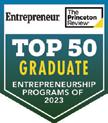


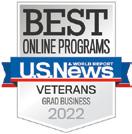

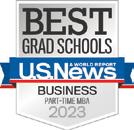



EXECUTIVE DEGREES
PROFESSIONAL DEVELOPMENT
CORPORATE TRAINING
FAU Neuroscientists Find Sex Differences in the Brain
Florida Atlantic neuroscientists recently discovered a genetic mutation that explains different behaviors in males and females.
Neuropsychiatric disorders like Attention-Deficit/Hyperactivity Disorder (ADHD) and Autism Spectrum Disorder (ASD) are found in four times as many boys as girls, but there’s limited science that explains this disparity – or other major sex-related differences found in these disorders.
The researchers looked at how this genetic variant affects ADHD and ASD through the dopamine activity in the brain. Both disorders are connected to dopamine, a vital neurotransmitter that regulates activities like motor function, attention, motivation, learning ability and social behavior. Dopamine is also the target of go-to medications to treat these disorders, including Adderall and Ritalin.

“We found a fundamental difference in the biology of the brain between males and females, specifically with how the dopamine systems work,” said Randy Blakely, Ph.D., professor of biomedical science in FAU’s Charles E. Schmidt College of Medicine and executive director of FAU’s Stiles-Nicholson Brain Institute.

Blakely led the study, published in the journal Molecular Psychiatry, in collaboration with Adele Stewart, Ph.D., first author on the report, research assistant professor of biomedical science in the Charles E. Schmidt College of Medicine and member of the Brain Institute.


Blakely and Stewart found that the genetic mutation affects how dopamine is controlled in the brain, by essentially reversing the function of a protein whose primary role is to regulate dopamine.
“This mechanism in the brain sends males versus females on a totally different trajectory of behaviors,” Stewart said.
Based on the experiments, male mice were impulsive, less social and hyperactive, but females were anxious, had memory issues and struggled to recognize new things.
“Disorders that we define behaviorally could have completely different mechanistic underpinnings,” Stewart said. “And ultimately, we need to know what those biological underpinnings are, if we’re going to effectively treat them.”
Florida Atlantic University’s College of Engineering and Computer Science is now ranked among U.S. News & World Report’s top three fastest progressing engineering colleges in the country. And its ascension continues at an incredible pace under the leadership of its dean, Stella Batalama, Ph.D.
Since joining FAU in 2017, Batalama has spearheaded the college’s increase in robust research and education programs to ensure students’ success. She oversees the college’s 34 degree programs and disciplines, which include modern specializations in areas of national priority such as cybersecurity, data science, Internet of Things, transportation and supply chain management. In 2021, she introduced the state of Florida’s first Master of Science degree in artificial intelligence (AI). Both regionally and nationally, the college also is known for its strong teaching and advising methods, diversity of the student body, effective K-12 outreach programs, meaningful collaborations with business and industry, and quality and quantity of research.

“From driving discoveries to treat malaria in developing babies in the womb, to innovating bioinspired materials that mimic mangroves to guard coastlines, to leading interdisciplinary teams that develop a first-of-its-kind bioengineered robotic hand, the college is pioneering big ideas that impact the global good,” Batalama said.
In addition, Batalama’s accomplishments in the college are due to her wide-ranging expertise in areas that include cognitive and cooperative communications and networks, underwater signal processing, and covert communications. Her
contributions in these fields have been reported in more than 170 technical papers and she has been awarded more than $9 million in sponsored research funding.
In the engineering field, Batalama’s rise is something of a rarity. When she arrived at FAU, there were only 57 female engineering deans or directors in the U.S. — or 15 percent of total engineering college leaders, according to the Society of Women Engineers. Today, there are more than 80 (26 percent) including Batalama. As an active member of the society, she said she is passionate about increasing the representation and advancement of women and underrepresented minorities in academic careers in science, technology,
engineering and mathematics (STEM). Among her goals, Batalama said she is enthusiastic about elevating excellence within the college and helping drive the university forward. In the past four years, her achievements include a 164 percent increase in external research funding, a 480 percent increase in student internships, and a 185 percent growth in graduate degrees awarded in computer science.
Batalama also is trailblazing a path in cutting-edge research and technologies focused on AI and autonomy, data science and machine learning. In spring
2021, the college launched the Center for Connected Autonomy and Artificial
Intelligence (CCA-AI) on the Boca Raton campus to accelerate the development of innovative AI and autonomy solutions. The projects taking place at the CCAAI focus on underwater, surface, air and space applications that are supported by autonomous resilient machine-to-machine wireless networking. The center is supported by the Schmidt Family Foundation, FAU’s Institute for Sensing and Embedded Network Systems Engineering, the National Science Foundation, the U.S. Department of Defense and U.S. industry, totaling more than $5 million in funding. Already, it has garnered more than $9 million in basic research federal funding.
“It will enable us to deliver on the full promise and potential of this technology that is transforming industry from government and public services to life sciences and health care to transportation, financial services, energy and other fields,” Batalama said.
The college also has benefitted from the generosity of the GANGALS nonprofit Foundation, Inc., which has given approximately $1.5 million in recent years. This includes $500,000 in 2018 to establish the Gangal Family Endowed Scholarship Fund to support talented students as they prepare for professional careers in STEM, and $750,000 in 2019 to name the Lata and Shiva Gangal Global Innovation Hall in the Engineering East building, a space that fosters learning, creativity and collaboration; and showcases student innovations and research achievements.
“As we move toward the fourth industrial revolution, which is expected to have a tremendous economic impact on our world, FAU’s College of Engineering and Computer Science is poised to become an international leader in STEM education,” said FAU President Stacy Volnick. “This is taking place through new investments that build our ongoing innovations and technological expansions, as well as the incredible direction of Dean Batalama. I am confident that the College will continue its upward trajectory under her leadership, as we work to create an exciting new future for all.”
Over the past four years, College of Engineering and Computer Science Dean Stella Batalama, Ph.D., has led the college on an upward trajectory, including:
164% EXTERNAL RESEARCH FUNDING
480% STUDENT INTERNSHIPS
185% GRADUATE DEGREES AWARDED IN COMPUTER SCIENCE



Nearly $1 Million to Increase Inclusivity of Faculty
To help ensure appropriate representation of women in science, technology, engineering and mathematics (STEM), Florida Atlantic researchers received a three-year, nearly $1 million National Science Foundation (NSF) ADVANCE ADAPTATION grant.



Studies show that the absence of an inclusive and diverse STEM faculty significantly hurts the education of a STEM workforce by the lack of role models to help educate diverse groups of students. Demographically unrepresentative science also can negatively impact and neglect research in areas that communities and societies need.

The NSF ADVANCE program is designed to foster gender equity through a focus on the identification and elimination of organizational barriers that impede the full participation and advancement of diverse faculty in academic institutions. Organizational barriers that inhibit equity may exist in policies, processes, practices and the organizational culture and climate. ADVANCE “Adaptation” awards provide support for the adaptation and adoption of evidence-based strategies to the academic, nonprofit institutions of higher education as well as non-academic, nonprofit organizations.
“Successful implementation of our program for institutional change will achieve a more representative and participatory STEM faculty and accelerate institutional competitiveness in education and research,” said Alka Sapat, Ph.D., principal investigator, professor and director of the School of Public Administration in FAU’s Dorothy F. Schmidt College of Arts and Letters. “The crucial outcome of this transformation will be the mitigation of STEM workforce shortages with implications for local industries, in particular, biotechnologies, aerospace, health, aging, agriculture, international trade, marine environment, information and security, and financial services.”
Delray Medical Center is the first hospital in Florida to treat a patient with Alzheimer’s disease using non-invasive focused ultrasound technology as part of a groundbreaking study being conducted with Florida Atlantic’s Institute for Human Health and Disease Intervention (I-Health). An estimated 6.5 million Americans are living with Alzheimer’s disease, which is the sixth leading cause of death for those age 65 and older, according to the Alzheimer’s Association.
The FDA-approved clinical trial is designed to evaluate the safety and effectiveness of Insightec’s ExAblate Model 4000 Type 2.0 System, as a tool for disrupting the bloodbrain barrier in probable Alzheimer’s patients. Alzheimer’s may be caused by a buildup of certain proteins in the brain. Precisely guided by magnetic-resonance imaging, ultrasound

waves are directed at specific areas of the patient’s brain to create a temporary opening in the blood-brain barrier where the protein buildup may be reduced.
“Drug passage through the blood-brain barrier is perhaps one of the greatest challenges in neurology,” said Gregg Fields, Ph.D., executive director of I-Health, professor of chemistry and biochemistry in FAU’s Charles E. Schmidt College of Science, and program director for the project. “The treatment of the first patient in Florida with the non-invasive focused ultrasound technology represents a significant advancement for potential drug delivery and treatment of Alzheimer’s disease and other neurological disorders. In tandem, we are also working on non-invasive, bloodbased monitoring to determine if treatments are effective.”
As part of Florida’s Brain State initiative, a strategic plan to advance Alzheimer’s research in Florida, the trial plays an essential role in caring for the state’s aging population. The study is also being conducted at up to eight sites across the country, bringing its impact to the national stage.
“By establishing the Florida Alzheimer’s Center of Excellence last year, Gov. Ron DeSantis has placed Alzheimer’s disease as a priority health issue in Florida, which will benefit the more than 580,000 people now living with Alzheimer’s as well as their families,” said FAU President Stacy Volnick. “We are excited to collaborate with Delray Medical Center, Insightec and others on this groundbreaking technology that will create the next generation of patient care for Alzheimer’s disease and other neurodegenerative disorders.”


‘‘While throwing things at one another may not help humans solve their problems, such behavior may help manage social interactions where octopuses live in close proximity. Tossing shells and blasting silt at one another may be how these octopuses defend their territory or tell potential mates they aren’t interested.”


They’re excellent liars. They’re increasingly capable of having more and more seamless interactions with humans. They can tell you that they feel that they’re persons. And then 10 minutes later, in a distinct conversation, they will say the opposite.”
We’re all better off if we have a sense that we are important agents in our own lives, that we’re competent, at least at some things. Risk is cost and benefit. And when we take risks and we succeed, there’s often great benefit. We want to moderate the risks, of course, for our children. But we don’t want to prevent them from engaging in it.”
The high incidence of head injury and subsequent skull fractures due to falls is a cause for concern as our aging population continues living active lifestyles.”
Scott Alter, M.D., associate professor of emergency medicine in FAU’s Charles E. Schmidt College of Medicine, to U.S. News & World Report. His recent study found that while older women are treated for falls more often than men, the falls can be more dangerous for older men than for women.


David F. Bjorklund, Ph.D., professor in the Department of Psychology in FAU’s Charles E. Schmidt College of Science, to HealthDay about how a lack of independent play caused by “helicopter parenting” could be contributing to our nation’s adolescent mental health crisis.

Now, of course, those parents or guardians are not going to be able to see the content of any chats or content being exchanged between individuals, but at least they’ll have a better idea of who they’re talking to. And ideally that will lead to the promotion of additional conversations related to safety, related to security, and privacy and trust.”
Sameer Hinduja, Ph.D., co-director of the Cyberbullying Research Center and professor of criminology in FAU’s College of Social Work and Criminal Justice, to ABC News on new safety features for Snapchat.

The knee-jerk reaction is to say, oh my gosh, there could be hurricanes, and nobody’s moving to Florida. Well, the evidence flies in the face of that. Hurricanes have been striking Florida way before any of us were alive, and people still have been moving here in massive numbers.”
Brian Lapointe, Ph.D., research professor at FAU’s Harbor Branch Oceanographic Institute, to CNN about the 5,000-mile-wide blob of sargassum seaweed that is headed for Florida and the Caribbean. This year’s sargassum mass could be the largest on record.


She almost lost the foot. It’s a classic shark bite. She’ll be running in no time. I think it’ll probably take another couple of months, and she’ll be back to normal. She will have some nasty scars — there’s no way around that, but she’ll be back to normal.”
Nir J. Hus, M.D., Ph.D., trauma surgeon and assistant professor of surgery in FAU’s Charles E. Schmidt College of Medicine, to PEOPLE. Hus treated Jasmine Carney, 10, who nearly lost her foot in a shark attack.

The increasing rates from firearm deaths in the U.S. among school-age children are not unique to Texas. These rapidly increasing rates have been noted across the entire country. It is sobering that, in 2020, more than 4,500 U.S. school-age children were killed by firearms compared with 45 police officers who were killed in the line of duty.”
Charles H. Hennekens, M.D., Dr.PH, first Sir Richard Doll Professor of Medicine in FAU’s Charles E. Schmidt College of Medicine, to U.S. News & World Report about his study on increasing firearm deaths among Texas school-age children.


“This is an entirely new oceanographic phenomenon that is creating such a problem — really a catastrophic problem — for tourism in the Caribbean region where it piles up on beaches up to 5 or 6 feet deep.”
Once you have a base on the moon, the whole solar system is ours. The moon is our steppingstone to the rest of our solar system without a doubt.”
Flooding generally kills more people during hurricanes than any other cause. The communities hit by Hurricane Ian were in places that have many new residents who had never experienced a major storm.”
John Renne, Ph.D., director of the Center for Urban and Environmental Solutions in FAU’s Charles E. Schmidt College of Science, to NBC News on how people in southwest Florida were not prepared for Hurricane Ian, largely because many are transplants from out of state.


One area of optimism in cancer treatment is the growth in finding bloodbased biomarkers that allow cancer to be detected early. It’s less invasive and more convenient, allows for early detection and people can self-test. Earlier detection makes surgery and localized treatments more effective. Another optimistic development: immunotherapies, which a decade or so ago didn’t seem to be living up to their promise, have become ‘very effective’ for certain patients now that scientists have discovered how to negate the properties that enabled cancer cells to escape detection by the body’s immune system fighters. These are very promising developments.”
Gregg Fields, Ph.D., interim vice president for research, executive director of FAU’s Institute for Human Health and Disease Intervention and professor in the Charles E. Schmidt College of Science, to Florida Trend on early detection and finding blood-based biomarkers that offer hope in treating cancer.
Greg O’Corry-Crowe, Ph.D., behavioral ecologist at FAU Harbor Branch Oceanographic Institute, to WIRED on the mystery of Alaska’s disappearing whales.


When the change is so seismic, maybe, and so rapid, you’re trying to look for the innovators and the pioneers among the social conservatives.”
Scientists from FAU Harbor Branch Oceanographic Institute recently grew baby Florida pompano fish in low salinities, increasing the feasibility for farming them.

The Florida pompano is a prime candidate for aquaculture commercial fish production in the U.S. The marine fish species is found in warm water habitats along the eastern Atlantic Ocean, but fewer than 10 aquaculture farms across the U.S. have been successful in commercially raising and distributing them. When attempting to rear Florida pompano from hatch to market, farms face a variety of challenges including access to seawater. On inland farms, seawater must be mixed onsite using artificial sea salt products, which can contribute to high production costs and lower profit returns.

For the study, Florida pompano larvae were raised in three different salinities: 10, 20 and 30 parts per thousand (ppt) at local producers’ farms. Growth, fatty acid profiles and cell formation were measured and recorded every three days after hatching, and results were compared across salinities.
Results, published in the journal Aquaculture, showed that larvae reared at 10 ppt grew at a normal rate, with no harm to their development or physiology.
“We have shown that it is possible to grow this warm water marine species in salinities as low as 10 parts per thousand, which makes it more economic and easier for producers far from the coast to attempt Florida pompano commercial growth,” said Sahar Mejri, Ph.D., senior author and assistant research professor in the Department of Aquaculture and Stock Enhancement at FAU Harbor Branch. “We expect to run this study for a longer period to investigate the long-term effects of low salinity on larval health and development.”

Florida Atlantic University’s College of Education has received a $1.8 million grant from the U.S. Department of Education’s Office of English Language Acquisition to improve the quality of instruction for preschool-age English language learners and support their readiness for kindergarten.
The five-year project, in collaboration with the School District of Osceola County (SDOC), is titled “PRAISE, Preparing for Readiness and Academic Improvement for pre-School English Learners.” FAU is one of 44 institutions nationwide selected to receive this grant.
PRAISE develops, implements and evaluates a yearlong professional development containing two sequential components: a four-day summer institute for preschool educators and school leaders, and a monthly yearlong school readiness professional learning community. Researchers in the College of Education will provide professional development to paraprofessionals in pre-K classrooms located within SDOC schools.
“English learners in Florida and our nation face significant obstacles,” said Daniel Reyes-Guerra, Ph.D., associate professor in FAU’s Department of Educational Leadership and Research Methodology, and the principal investigator of PRAISE. “Together with our partners at the School District of Osceola County, PRAISE will help to prepare young students to develop their English language and literacy skills as a foundation for their future academic success. The goal is to facilitate their language learning so that they are on equal footing with their peers when they enter the classroom. We not only want them to excel in academics, we want them to be able to harness their language resources to successfully socialize with their peers, teachers and others.”


The Americas were the last continents to be inhabited by humans, and current research points to a complex settlement process, especially for South America.
Using cutting-edge genetic analyses from the DNA of two ancient humans excavated in northeast Brazil, a team of FAU researchers has provided new insight into the migration patterns of people in South America.
Results of the study, published in the journal Proceedings of the Royal Society B. (Biological Sciences), suggest that in addition to the known north-south migration route, Indigenous populations also migrated from south to north, via the Atlantic coast.
To make this discovery, the scientists analyzed the genome for the two individuals, who lived about 1,000 years ago. Their DNA was then compared with the genomes of modern-day Brazilians living in both the northeast and southeast parts of the country, as well as Uruguay and Panama.

The genetics revealed a wealth of surprising diversity, including evidence of Neanderthal DNA, in addition to Denisovan DNA, from an extinct species of ancient humans that lived in Asia.
“We found a higher percentage of Denisovan DNA than Neanderthal DNA, which was totally unexpected,” said Andre Luiz Campelo dos Santos, Ph.D., first author, archaeologist and postdoctoral fellow in FAU’s Department of Electrical Engineering and Computer Science. “[Though] we aren’t entirely sure what it means.”
Researchers also found signatures of genetic traces of Indigenous Australians and those from Papua New Guinea.
The coastal movements may have eventually linked ancient Uruguay and Panama — 3,270 miles apart — the researchers hypothesized.
“This groundbreaking research involved many different fields from archaeology to biological sciences to genomics and data science,” said Stella Batalama, Ph.D., dean, FAU College of Engineering and Computer Science. “Our scientists at Florida Atlantic University in collaboration with Emory University have helped to shed light on an important piece of the Americas’ puzzle, which could not have been solved without powerful genomic and computational tools and analysis.”
Neanderthal-specific Denisovan-specific Shared archaic ancestry
New Home for Neuroscience Research
The three-story, state-of-the-art facility was designed as a collaborative hub for neuroscience to foster connections and serve as a global destination for the world’s brightest scientists and students. The institute serves as a “beacon of hope” for research into numerous brain and behavioral disorders.
The FAU Stiles-Nicholson Brain Institute was made possible by a $10 million gift from David J. S. Nicholson, who championed the idea of a new brain research, education and community engagement institute. The $35 million research space represents a significant investment by the state of Florida, FAU and its research partners.

“As we officially open the doors to the FAU Stiles-Nicholson Brain Institute, we are poised to accelerate the discovery and translation of novel therapies and treatments that will provide new hope for patients within our communities and worldwide. Importantly, the FAU Stiles-Nicholson Brain Institute will invigorate interest among young people to pursue STEM as a career and ultimately improve our nation’s rankings in science and math education,” Nicholson said.
The first floor houses the Center for Brain Disease Modeling, a facility designed to develop and advance approaches to study brain disorders, including Alzheimer’s disease, autism, addiction and brain cancer. A key feature of the second floor is the Advanced Cell Imaging Core Laboratory, where the visualization of brain cells takes place. Multidimensional, dynamic cellular and brain circuit visualization merges with computational and virtual reality resources in this space to allow researchers to peer deeply into the brain.
The second floor of the building also contains more than $1 million in already acquired equipment and houses one of 14 Nikon Centers of Excellence in the United States. Plans for the third floor will be announced in the coming months.

“We believe that the impact from bringing together the brightest minds within this facility to unravel the secrets of the brain will improve the quality of people’s lives for decades to come,” said Randy Blakely, Ph.D., executive director of the Brain Institute, David J. S. Nicholson Distinguished Professor in Neuroscience, and professor of biomedical science in FAU’s Charles E. Schmidt College of Medicine.

More than 1.6 million Americans have suffered the loss of a limb. Despite advancements in technology, prosthetics still are not completely sufficient. Researchers at FAU want to change that.
Current prosthetic hands have five individual digits, yet only one grasp function can be controlled at a time. That means simple tasks like using a screwdriver or a can opener — let alone more complex tasks — are largely impossible, according to Erik Engeberg, Ph.D., professor in FAU’s College of Engineering and Computer Science and member of the FAU Stiles-Nicholson Brain Institute.

“Anything exceeding basic functionality remains elusive for prosthetic hands even though they are mechanically capable of such feats,” said Engeberg, who recently was awarded a four-year, $1.2 million grant from the National Science Foundation to work with amputees to learn advanced control over more sophisticated prosthetic hands, with an automated training regimen that can be used at home.
The project involves a novel bimodal skin sensor that combines machine learning motor intention classification algorithms and reinforcement learning. Clinicians will interact with 10 study participants over the course of one year for muscle training using a smartphone.
“Automating this aspect of health care with remote learning functionality can help disabled people access treatment more quickly, more conveniently, and at a lower cost,” Engeberg said.
Florida Atlantic is highly ranked by several leading authorities and is a nationally recognized leader in equitable student success.
U.S. News & World Report
Best Online Programs
#17
MASTER’S IN NURSING ADMINISTRATION
#22
MASTER’S IN BUSINESS PROGRAMS FOR VETERANS
#31
MASTER’S IN NURSING
#52
#44
BACHELOR’S IN BUSINESS
#52
MASTER’S IN EDUCATION
Military Friendly® Schools

TOP 10 TIER 2 RESEARCH INSTITUTION
MASTER’S IN BUSINESS PROGRAMS
Prized for its iconic spiral shell and meat, the queen conch is considered the cornerstone of the Caribbean culture and economy, but decades of overfishing have caused their populations to plummet. A new $2.8 million gift from Builders Initiative will help support FAU Harbor Branch Oceanographic Institute researchers’ species restoration efforts.


The gift will establish a pilot-scale queen conch aquaculture farm led by Megan Davis, Ph.D., research professor, Aquaculture and Stock Enhancement, and the world’s leading expert on queen conch aquaculture with 40 years of research in the field. The Grand Bahama queen conch hatchery is the fifth such FAU partnership project to restore the queen conch in the Caribbean. Other queen conch farms established since 2016 are in Puerto Rico, Curaçao and Great Exuma, Bahamas.
“Builders Initiative is thrilled to be an anchor funder of Florida Atlantic University’s innovative program to establish conch aquaculture hatchery facilities across the Caribbean,” said Peter Bryant, oceans program director at Builders Initiative. “We’re committed to accelerating restorative aquaculture solutions in The Bahamas, and this project is a cornerstone of our program, one that will restore conch populations in The Bahamas while also providing benefits to local communities.”
The gift also enables development of a conceptual master plan for a 25-acre innovation hub on Grand Bahama for researchers working to solve issues of island sustainability. The FAU School of Architecture’s MetroLAB Design Collaborative will work with strategic partner Blue Action Lab on the master plan.
“Our FAU Harbor Branch Queen Conch Lab team together with our partners are making strides to fulfill the vision of a conch farm in every Caribbean nation,” said Davis. “There has never been a more important time to help communities grow queen conch for the sake of the species, ecosystem, and the people who depend on the fishery.”
 From left, top row: Joe Thomas; Nako Brice; Shervin Tate; Megan Davis, Ph.D.; Randy Reckley and Leroy Glinton. Bottom row: Gail Woon, EARTHCARE; Cristina Zenato; Tereha Davis and Jewel Beneby, Bahamas National Trust in Grand Bahama.
From left, top row: Joe Thomas; Nako Brice; Shervin Tate; Megan Davis, Ph.D.; Randy Reckley and Leroy Glinton. Bottom row: Gail Woon, EARTHCARE; Cristina Zenato; Tereha Davis and Jewel Beneby, Bahamas National Trust in Grand Bahama.
FAU and Broward Health, one of the 10 largest public health care systems in the United States, announced a groundbreaking partnership to collaborate in the areas of education, clinical training and practice, health services administration and research.

“Florida Atlantic University and Broward Health share a common vision and purpose of providing high-quality and compassionate medical care, stellar education, and lifesaving research close to home,” said Brad Levine, chair of the FAU Board of Trustees. “This collaboration makes us part of a vital network in Broward County that connects us with a partner that will enable us to care for our community.”
As part of the collaboration, FAU and Broward Health plan to explore opportunities for joint research and scholarship at the student and faculty level, community engagement, fundraising opportunities, and integrating academic medicine, first within the setting of the system’s safetynet hospital. Safety-net practices are providers that organize and deliver a significant level of health care and other needed services to uninsured, Medicaid and other vulnerable patients.
Students in health sciences enrolled at FAU will have access to physicians and clinical facilities within Broward Health thanks to this agreement.

“We welcome opportunities for collaboration to expand our health care network, provide lifesaving medical services, and importantly, train the next generation of physicians who will serve our communities with compassion, integrity and highly skilled care,” said Shane Strum, president and CEO of Broward Health. “As the first statutory teaching hospital in Broward County, partnerships like this one ensure we continue to build the skilled physician workforce our region needs while meeting the health care needs of our communities today.”

Florida Atlantic University received a $1 million gift from Florida Power & Light Company, through its charitable arm, the NextEra Energy Foundation, to establish the FPL Center for Intelligent Energy Technologies (InETech), which will be housed in the FAU College of Engineering and Computer Science. As part of this commitment, FPL will engage in a four-year collaboration with the university to pursue research relating to smart technologies, products relevant to the energy sector and workforce development.
“Florida Atlantic takes great pride in its partnerships with community and industry leaders,” said FAU President Stacy Volnick. “We truly appreciate this gift from our partners at FPL and NextEra Energy, which will support our bold vision to solve tomorrow’s challenges today and create impactful opportunities for our students and faculty.”
In addition to funding research for the benefit of the energy sector, the gift enables the creation of the FPL InETech Center Scholarship, which will help the College of Engineering and Computer Science continue to attract highly qualified undergraduate and graduate students. It also will support community outreach and K-12 activities that aim to spur interest and educate youth about the energy industry.
“At FPL, we hope that many of these students will become our future employees that can help drive innovation and creative solutions to meet the evolving needs of our customers and our communities,” said Pam Rauch, FPL vice president of external affairs and economic development. “We have a long-standing partnership with FAU, and we are honored to work together to bring this state-of-the-art facility to life to inspire and motivate the energy leaders of tomorrow.”


Toxins produced from harmful algal blooms (HABs) are making their way through the food web and into young bull sharks in the Indian River Lagoon (IRL), according to a recent study led by researchers at the FAU Harbor Branch Oceanographic Institute.

Concentrations of phycotoxins were measured in shark gut contents, plasma (blood) and liver samples collected from 50 young bull sharks captured in the IRL between 2018 and 2020. HAB species produce phycotoxins, potent chemicals produced by organisms at the base of the food chain, as well as in marine algae and cyanobacteria. The contaminants degrade habitat quality and make wildlife and people sick.
Results, published in the journal Science of the Total Environment, suggest multiple phycotoxins in the IRL are widespread or persistent in the environment. Analysis of 123 samples demonstrated the presence of multiple phycotoxins (microcystin, nodularin, teleocidin, cylindrospermopsin, domoic acid, okadaic acid and brevetoxin) in sampled bull sharks. The highest concentrations of most toxins were detected in the gut content samples, highlighting dietary exposure as an important mechanism of toxin transfer to bull sharks in the system.
“The presence of one or more phycotoxin in 82 percent of the bull sharks sampled in our study and their prey items highlights the potential threat of toxic algae to the Indian River Lagoon ecosystem and surrounding human populations that may consume the same prey species,” said Michelle L. Edwards, corresponding author, former field technician and marine science and oceanography graduate student at FAU Harbor Branch.
According to Matt Ajemian, Ph.D., senior author, assistant research professor and director of the Fisheries Ecology and Conservation Lab at FAU Harbor Branch, researchers have just scratched the surface on what HAB exposure means for bull sharks in the IRL.
“This was an essential first step in developing critical baselines as we continue to monitor the responses of these animals to HABs in the future,” Ajemian said.



FAU researchers like Sarah Du, Ph.D., left, developed an inexpensive finger-prick device to accurately diagnose sickle cell disease and measure sickle cell blood. Learn more at www.fau.edu/research-admin/technology-development

A child’s early disinterest in school, particularly with math and reading, can cascade into problems with peers, according to new findings by FAU researchers.

“Children with behavioral and emotional problems struggle with the transition into elementary school; they do poorly in classes and relationships with their peers suffer as well,” said Brett Laursen, Ph.D., senior author and professor of psychology in FAU’s Charles E. Schmidt College of Science. “We suspected that another path to early peer difficulties runs through the well-established link between disinterest in school and subsequent difficulties with math and reading.”
For the study, researchers used four annual waves of data collected from 545 children (311 boys, 234 girls) followed from first through fourth grade (ages 6 to 8 at outset). Each year, teachers completed assessments of academic task avoidance and students completed standardized measures of reading and math achievement. Acceptance was assessed through peer nominations.


Florida Atlantic has received approval from the Florida State University System Board of Governors to establish a dental academic program. One of the University’s top legislative priorities is to secure funding to make this initiative a reality. When successful, Florida Atlantic will house only the second public dental school in Florida. Its chief purpose will be to support the many rural and underserved populations in the state that need critical dental care.
The findings, published in the European Journal of Developmental Psychology, showed that a lack of interest in school and low academic task motivation resulted in a downward spiral of troubles, from poor study habits to academic difficulties to declining peer acceptance. Children prefer to affiliate with students who are not struggling, Laursen said.
Specifically, avoiding classroom assignments and tasks in first grade led to declining math and reading achievement one year later in second grade. This in turn led to decreases in peer acceptance the following year in third grade. The same longitudinal pathway unfolded across the second to fourth grade.
“Our findings have important implications for parents, teachers and school professionals who want to prevent the onset of troubled peer relations,” Laursen said. “Considerable effort is currently invested in interventions for children with behavioral and emotional problems, because they are known to be at-risk for academic and interpersonal failure.”

Florida is facing a shortage of health professionals, which also extends to dental care. Currently, more than 6 million Floridians live in areas that lack dental care, with 63 out of 67 counties facing shortages. Additionally, more than half of the Medicaid-eligible children living in Florida do not receive any oral care at all.
The university is extremely grateful to Board of Trustees Vice Chair Barbara S. Feingold for her vision, leadership and generosity to help meet this critical need, in honor of her late husband, former FAU Trustee and dentist, Dr. Jeffery P. Feingold.

Mobile Nursing for Healthier Communities
To create healthier populations and reach rural, medically underserved regions, researchers from FAU’s Christine E. Lynn College of Nursing are taking their services on the road with a nurse-led mobile health unit.

The researchers received a four-year, $3.9 million grant from the Health Resources and Services Administration of the U.S. Department of Health and Human Services for the project, titled “Caring-based Community & Academic Relationships for Excellence (CARE): Nurse-led Mobile Health Unit.”
The nurse-led mobile health unit will provide primary and mental health care services in underserved communities of Belle Glade and West Palm Beach, including families with children, veterans, homeless persons, women and children sheltering from domestic violence, and young persons who have aged out of the foster care system,
which represent the populations at highest risk for health disparities and low literacy.
The project is in partnership with the FAU/Northwest Community Health Alliance (NCHA) Community Health Center as well as other community partners, and will also support nursing students earning a Bachelor of Science in Nursing and Doctor of Nursing Practice degree.
“Rather than expecting our medically underserved patients to come to our FAU/NCHA Community Health Center for their health care needs, with this important HRSA grant, we will now be able to go to them,” said Safiya George, Ph.D., dean, FAU Christine E. Lynn College of Nursing. “Importantly, by bringing our mobile health unit to our region’s rural and underserved communities, our CARE nursing students will have the opportunity to experience firsthand the impact of the social determinants of health.”

Transformational $10 Million Gift Establishes Holli Rockwell Trubinsky Eminent Dean in Nursing

FAU’s Christine E. Lynn College of Nursing received an estate pledge of $10 million from Holli Rockwell Trubinsky and Joseph Trubinsky to establish the Holli Rockwell Trubinsky Eminent Dean in Nursing. Safiya George, Ph.D., is the inaugural recipient of this gift, one of the largest endowed nursing deanships in the country. It will strengthen FAU’s ability to retain and recruit extraordinary leaders who elevate the college locally, regionally and nationally.

“Through my work as a nurse and having served on the Christine E. Lynn College of Nursing Advisory Board, I am acutely aware of the importance and impact nurses have in health care,” said Holli Rockwell Trubinsky. “Ensuring FAU’s ability to recruit and sustain extraordinary leaders who will
train future generations of nurses is a priority and passion.”
The need for a well-trained nursing workforce is urgent, as Florida faces a statewide nursing shortage. This endowment provides crucial philanthropic support to combat these shortages. Supporting FAU’s mission to train a distinguished nursing workforce, recognized for high-quality clinical skills and person-centered care, the Trubinskys serve as a catalyst for generations of positive change. Their estate gift provides the dean with vital resources to respond to the changing needs of nurses amidst a dynamic health care landscape.
“The Trubinsky gift truly is transformational for the College of Nursing,” George said. “The current
nursing shortage throughout the health care industry has reached a critical point, and this gift, once realized, will help us draw the best and brightest to FAU, and create positive and significant impacts on the nursing profession in the future.”

The Trubinsky gift also advances the strategic priority of the FAU Health Network, addressing health care professional shortages to improve the lives of citizens in South Florida and beyond.



FAU faculty, staff and students go above and beyond in the community and throughout the world to make a difference. Their work has not gone unnoticed.
Here’s a look at some of the prestigious accolades and awards earned from across colleges and institutes.
ANNETTE LAROCCO, PH.D., assistant professor in the Department of Political Science in the Dorothy F. Schmidt College of Arts and Letters, received the 2022-23 Fulbright Scholar Award for the Africa Regional Research Program. Her project, titled “Mother’s Nature?: What All-Female Conservation Initiatives Can Tell Us About Gender, the Environment, and Power,” enables her to conduct research in two sub-Saharan countries: in Botswana, with host institution Okavango Research Institute in Maun, a center of the University of Botswana and one of the leading research hubs for critical conservation studies in the region; and in Zimbabwe, with host institution the Gender Institute at Midlands State University in Gweru.

CASSANDRA ATKIN-PLUNK, PH.D., associate director and associate professor in the College of Social Work and Criminal Justice, was elected executive counselor for the Division of Corrections and Sentencing within the American Society of Criminology.



RACHEL S. HARRIS, PH.D., an Eminent Scholar in the Dorothy F. Schmidt College of Arts and Letters, received a Fulbright Scholar Award for her project titled “With a Wider Lens: Recovering Lost Israeli Cinema 19471967.” The project examines the dozens of feature films, documentaries and informational broadcasts made in the first years of Israeli cinema. Working with scholars and archivists at Tel Aviv University, this award provides Harris the opportunity to research this foundational period in film history. Many of these films have been hidden away for decades to preserve the fragile filmstock, but now are available to view due to new digitization and restoration projects undertaken by the Israel Film Archive.
DANIEL GROPPER, PH.D., dean of FAU’s College of Business, was honored with the 2022 Distinguished Alumni Award from Florida State University’s College of Social Sciences and Public Policy. Gropper earned his master’s and doctorate degrees in economics at FSU.
CLAUDIA MONTAS, master’s student in the College of Social Work and Criminal Justice, is a 2022-23 Minority Fellowship Program Master’s Fellow with the Council on Social Work Education, the national association representing social work education in the U.S. The program aims to reduce the effects of substance abuse and mental illness by increasing the number of individuals trained to work with underrepresented and underserved racial/ethnic minority persons with or at risk for mental health and/or substance abuse disorders.

CHERYL A. KRAUSE-PARELLO, PH.D., associate dean and the Schmidt Family Distinguished Professor in the Christine E. Lynn College of Nursing is among 22 honorees worldwide who will be inducted into the Sigma Theta Tau International Honor Society of Nursing’s “2023 International Nurse Researcher Hall of Fame.” Her innovative work on the human-animal bond has helped to improve countless lives, especially among U.S. military veterans.

RANDY D. BLAKELY, PH.D., executive director, FAU Stiles-Nicholson Brain Institute, recently received the Society for Neuroscience’s 2022 Science Educator Award, which is presented to one researcher a year. The Science Educator Award celebrates top neuroscientists in the nation who devote their time to research while having made significant contributions in educating the public about neuroscience through outreach, policy and public educational activities for the benefit of the community.
KEN H. JOHNSON, PH.D., associate dean in the College of Business, received the 2023 Ratcliff Award from the American Real Estate Society. The Award is given to someone who demonstrates innovative research that extends the real estate discipline. Johnson was selected for developing housing market indices and a model that calculates the probability of a home sale using data from the multiple listing services.


ROLAND KIDWELL, PH.D., chair of the Department of Management Programs and director of the Adams Center for Entrepreneurship in the College of Business, was named a Justin G. Longenecker Fellow, the highest honor given by the United States Association for Small Business and Entrepreneurship. The award honors people who demonstrate a commitment to entrepreneurship through teaching, writing, research and public service. Only about 90 educators, researchers, government officials and others have been honored since 1986.
SIRI TERJESEN, PH.D., professor and associate dean of research and external relations in FAU’s College of Business, was inducted into the Summit County Sports Hall of Fame in September 2022 in Akron, Ohio. Terjesen, who has a fused spine due to its abnormal curvature, has run more than 105 marathons and ultramarathons in countries around the world, including the U.S., Spain, Belgium, Norway, Australia, South Korea and the U.K.



ANNA AGAPOVA, PH.D., associate professor of finance in the College of Business, was selected to participate in a Jewish National FundUSA fellowship to build collaboration between U.S. and Israeli institutions. Agapova was one of 35 participants to travel throughout Israel, meeting with professors, with the eventual goal of developing research projects, co-authoring articles and establishing exchange programs.

For more than 50 years, FAU Harbor Branch Oceanographic Institute has led the way in ocean exploration, conducted cutting-edge marine science research and educated the next generation of scientists and ocean stewards. Researchers have made ground-breaking discoveries in the fields of ocean engineering, drug discovery, marine ecosystem conservation and more, while tackling some of the most pressing issues facing Florida’s coastal and ocean environments.
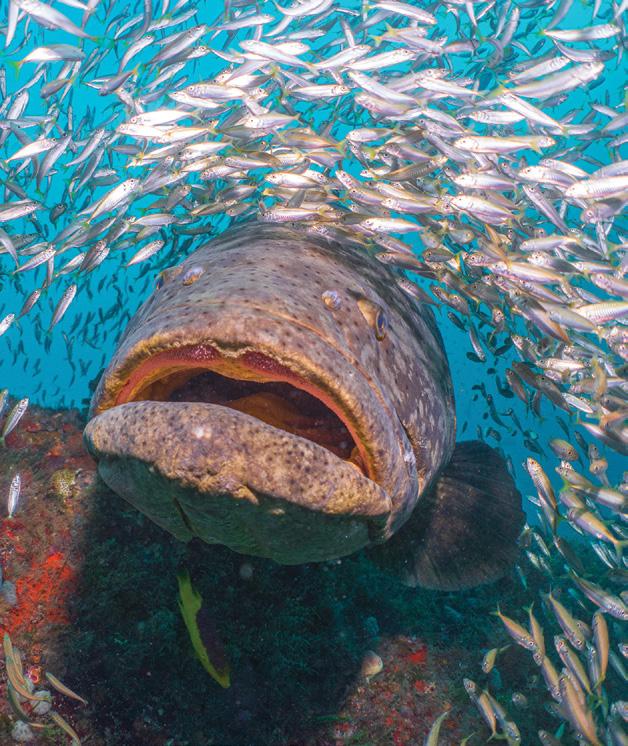

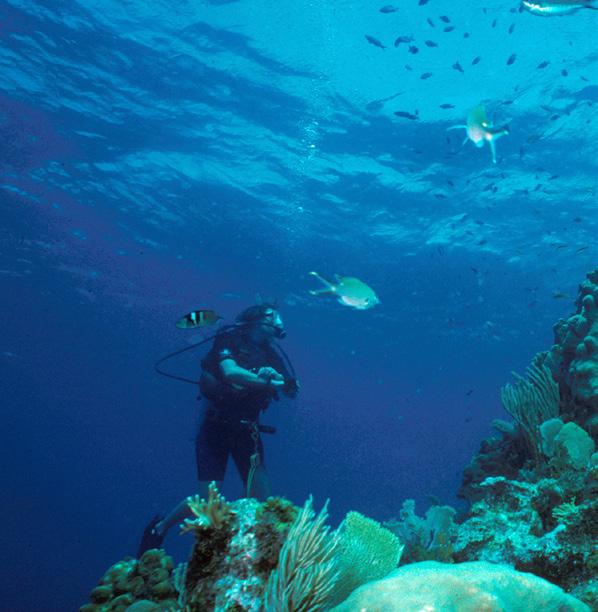

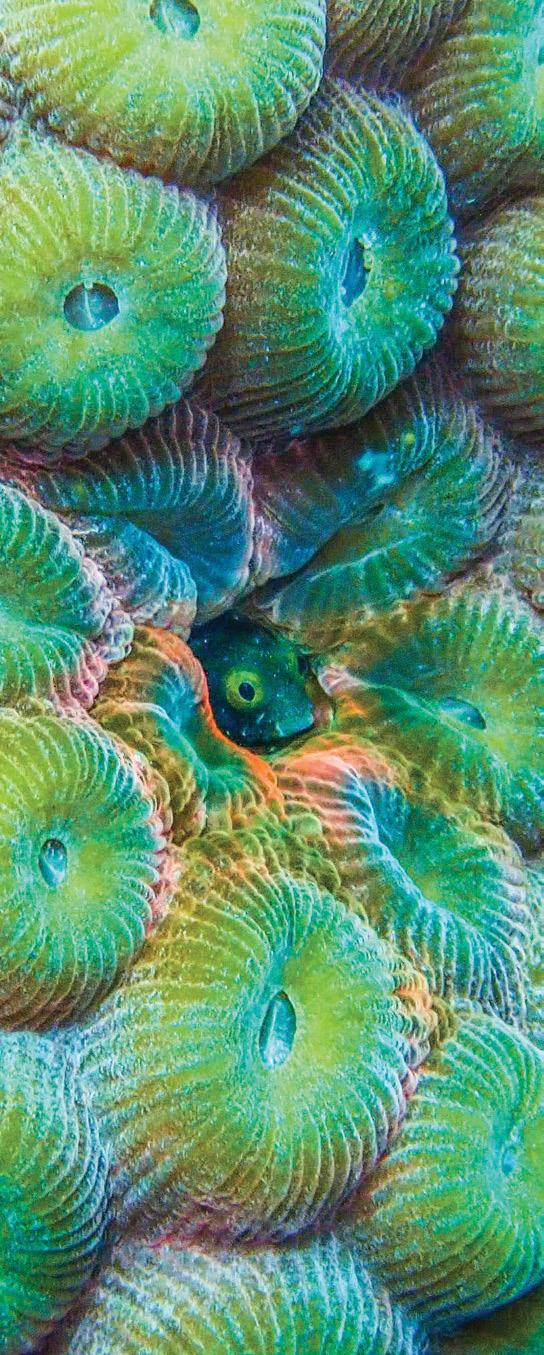


 BY AMY HAYCOCK AND JOE MURRAY
BY AMY HAYCOCK AND JOE MURRAY
At a time when many universities nationwide are struggling to close completion gaps between students of color, low-income students, and first-generation students, Florida Atlantic University achieved the nation’s fastest jump in graduation rates while eliminating these gaps. In fact, gains have been largest among Black/African American, Hispanic/Latinx and Pell-eligible students.

This achievement earned Florida Atlantic the prestigious Degree Completion Award from the Association of Public and Landgrant Universities in November 2022. The award recognizes one institution each year for employing innovative approaches to improve degree completion while ensuring educational quality. Florida Atlantic also was a finalist for the award in 2021, which earned national media attention. NBC News and The Root published articles about the university’s student success initiatives, including strategies to help struggling students stay in school and complete their degree programs.
Founded on the principle that higher education should be available to everyone, Florida Atlantic specializes in lifting up traditionally underserved students, including those from low-income homes. Around 39 percent of its 24,000 undergraduate students — nearly 9,400 — are designated as low-income at first enrollment.
Additionally, first-generation students — those who are the first in their families to earn a college degree — make up one-third of Florida Atlantic’s student body. Many of these students also are from low-income homes, and most lack the general knowledge necessary to navigate university policies, procedures, resources and expectations, which can create a barrier to academic success. Additional challenges include a lack of support systems and adequate resources, and financial struggles — all of which contribute to higher drop-out rates.
Florida Atlantic has developed a number of strategies to help these students overcome challenges and realize their full potential, thus delivering equitable student outcomes in achieving scholastic, and ultimately, career success. In fact, a recent study by Ashley
 Brannan,
Brannan,
M.Ed. ‘22, found that approximately 83 percent of low-income students who graduate from Florida Atlantic experience upward social mobility, by securing jobs with starting salaries above the low-income threshold.
“The university has a responsibility to put in place a framework to support student success,” said James Capp, Ph.D., Florida Atlantic’s assistant provost for academic operations and planning. “And we have delivered on the promise of moving students up income brackets.”
Florida Atlantic’s Office of First-Generation Student Success connects “first-gen” students to resources that assist in their development, such as advising and career services. Additionally, the first-generation advising team in University Advising Services (UAS) provides one-on-one support to help students navigate college life and achieve their goals.
“Students are able to get the feel of a university that’s twice our size, with athletics, student organizations and more, while also having a small university experience with the hands-on, one-on-one support they need,” said Keven Allen Jr., Ph.D., director of development for FAU’s Kelly/Strul Emerging Scholars Program. “That’s the magic of Florida Atlantic.”
For Christina Orelien, a neuroscience and behavior major, the Learning Strategies and Human Development course for first-generation students helped her transition into life at
FAU. It taught her the importance of professors’ office hours and study groups in her academic skill development. She also was encouraged to participate in student organizations such as the Caribbean Student Association, Konbit Kreyol and Owls Speak for Kids.
Academic Coaching and Career Enhancement for Student Success (ACCESS) helps first- and secondyear students who are struggling get back on track. Through regular meetings, each student’s academic coach identifies specific areas of skill development to focus on, and academic success plans are tailored to each student’s individual needs. For those who are predicted to be at-risk for not progressing to the next semester, the ACCESS program’s early intervention methods help to redirect negative behaviors and develop positive academic skill sets as habit — thus ensuring the student stays in school.
UAS and ACCESS were awarded $100,000 to fund Peer Academic Coaches (PACs) in 2021 with the goal of academically supporting and hiring first-generation college students. PACs are fully trained undergraduate and graduate students who support their fellow Owls through regular outreach and individualized academic coaching. They also help to facilitate study, time management, and other academic skills; make personalized recommendations regarding campus resources; and encourage engagement on campus and in the community.
As an out-of-state and first-generation college student during the COVID-19 pandemic, Michelle Jaron faced many challenges, which inspired her to become a PAC. She worked with students who faced similar challenges feeling connected to the university while attending classes remotely and helped them identify student organizations and in-person campus events that might be of interest.
“Just hearing that me meeting with them, or me emailing them, kind of helped them feel better about their situation, and made them want to continue their education at FAU, really stuck with me,” Jaron said.
First-generation students also have the option of applying for the Kelly/Strul Emerging Scholars Program, which was created in 2017 by University President Emeritus John Kelly and his wife, Carolyn, together with local philanthropists Aubrey and
Sally Strul. The program provides academically talented first-generation, lowincome students with financial resources, academic support, and mentorship to help them graduate debt-free from Florida Atlantic in four years or less.
Kelly/Strul scholar Dodlee Mosilme is majoring in biological sciences and aspires to attend medical school. He said his parents came to the United States with very few resources and guidance.


“As a Kelly/Strul scholar, I am humbled to be part of a community that helps firstgeneration students achieve their dreams. Being the son of Haitian immigrants, a Black male, and a first-generation college student is a privilege for me,” Mosilme said. “To be first means embarking on a dream that future generations will use as a foundation to continue to build on. It means creating a legacy that will sustain my family, community and future generations.”
All first- and second-year undergraduate students, regardless of income or first-generation status, have access to the Success Network, an online communication system that connects them to a network of support. The student’s academic advisor, faculty, tutors, dedicated career counselor, and additional support staff make up each student’s “Success Network.” The members of the network can proactively reach out if there’s an indication that a student may be struggling; and conversely, students can contact their team members if they need assistance. Additionally, incoming freshmen participate in Major KnOWLedge, an early exploration tool that helps them identify personal interests and their relationships to career pathways.
For students who need financial assistance to finish their degrees, Florida Atlantic offers numerous opportunities. The Launch Scholarship program was developed to incentivize students to complete their degrees in four years or less. Each semester, the university identifies students who require financial support to stay on track and also targets students who may be under-enrolling because they cannot afford 30 credits per year.
The Association of Public and Land-grant Universities (APLU) named Florida Atlantic the winner of the national Degree Completion Award at its annual meeting in November 2022. The award recognizes one institution each year for employing innovative approaches to improve degree completion while ensuring educational quality.

“It truly is an honor to receive the APLU Degree Completion Award, and I proudly share it with Florida Atlantic’s outstanding faculty and staff, who work tirelessly to ensure that our students receive the support they need to succeed,” said FAU President Emeritus John Kelly.
When Kelly joined FAU as president in 2014, the university launched a comprehensive plan to address equity gaps, advance student success, and increase the university’s graduation rate. After taking an exhaustive look at student success outcomes across a variety of characteristics, it was determined that far too many students were lacking adequate support in entry-level courses.
To address this, the university launched an analytics platform to help inform and track the effectiveness of student success interventions. These reforms included the adoption of standardized “flight plans,” enabling students to easily see the optimal progression of courses to a degree; addressing course bottlenecks that were preventing students from graduating in a timely manner; and innovative financial assistance. The multipronged approach contributed to FAU more than doubling its four-year graduation rate from 2014 to 2021. Crucially, gains have been largest among historically underserved groups.
“Florida Atlantic University has made critical strides in student success, graduation and equity,” said Mark Becker, president of APLU. “Congratulations to FAU on winning the 2022 APLU Degree Completion Award. We’re delighted to spotlight their important work so other institutions can learn from their success.”
In an effort to remove financial barriers for students while getting them engaged on campus, FAU greatly expanded its on-campus employment program. In 2014, the university had less than 700 students employed on campus, and in 2021, the institution employed nearly 1,300 students. As a general practice, whenever FAU has vacancies for fulltime positions, unit leaders now consider whether the job could be done by two or more part-time student employees. Instead of students spending time commuting to off-campus food service or retail jobs, they can stay on campus and form important personal connections. Preferably, they’re also working in a position that aligns with their area of study, so they’re prepared for their chosen careers. On-campus employment not only provides paychecks, it also promotes a sense of belonging.
The university also created financial assistance programs that promote student progression. More than 1,000 students annually benefit from the $4.5 million progressive FAU Academic Grant, which initially awards up to $2,500 to instate students and $8,900 to out-of-state students. It increases by $500 annually — upon satisfactory completion of 30 credit hours each year, with at least a 3.0 grade point average — for a cumulative benefit of $13,000 to $38,600 over four years.
Each of these financial interventions are the result of teams of FAU employees coming together to identify pools of students who would benefit from these programs.
“It’s truly the aid that’s providing access to a degree for many of our students,” Allen said. “And when you combine that with a hard-working staff that is dedicated to helping these students be successful, that is a differentiator here at Florida Atlantic.”

In Florida, more than 1,300 unaccompanied collegeage adults are experiencing housing insecurity. Florida Atlantic currently serves 146 of those students, as well as 278 students from the foster care system. The Educate Tomorrow program was created to support and guide this population of students by providing book stipends, care packages, bi-weekly advising check-ins, progress updates and a dedicated and specially trained academic advisor and success coach.

Nonprofit organization Champions Empowering Champions contributes to Educate Tomorrow’s efforts by supporting students who have experienced foster care or homelessness with scholarships and stipends. Additionally, the Champions Empowering Champions housing grant has awarded $450,000 to Educate Tomorrow to assist students in need of housing. Florida Atlantic’s Owldopt-a-Room initiative also assists with students’ housing needs, by providing funds for essential and dorm room items, including bedding, an iron, basic school supplies and a small refrigerator — all items many students take for granted.
Through Educate Tomorrow, about 90 percent of these students are in good academic standing, more than 70 percent have at least a 2.5 GPA, and 48 percent graduate on time. In 2021, Educate Tomorrow won the Palm Beach Illustrated Education Award for Outstanding Program, in recognition of its success in increasing these students’ academic performance and graduation rates.
Educate Tomorrow student Sara Romeo found the program particularly useful when figuring out her own housing situation and all the paperwork that comes with financial aid and application. “It can be scary if you don’t have someone to guide you,” she said.
Through Educate Tomorrow, Romeo was able to navigate financial aid applications with a counselor and start a job on campus. “The guidance is there,” Romeo said. “Fall semester freshman year, I didn’t know what I was going to do, and I didn’t do my best in class. That’s when I leaned on them the most for support.”
While it is largely believed that children born into a lowincome socioeconomic status remain there as adults, Florida Atlantic is working to change that by ensuring they have a transformational educational experience that puts them on the road to a brighter future.

“The upward trajectory of our graduation and retention rates are due to the tireless efforts of Florida Atlantic’s faculty and staff, who work to ensure our students succeed,” said FAU President Stacy Volnick. “We are creating waves of change in the lives of our students and delivering on the promise of opportunity for all.”
 DOROTHY F. SCHMIDT COLLEGE OF ARTS AND LETTERS FLORIDA ATLANTIC UNIVERSITY
DOROTHY F. SCHMIDT COLLEGE OF ARTS AND LETTERS FLORIDA ATLANTIC UNIVERSITY
TURNING YOUR PASSION INTO YOUR PROFESSION
Adriana
Portobanco ‘18
BFA in Graphic Design
Art Director, Yahoo Learn

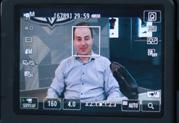




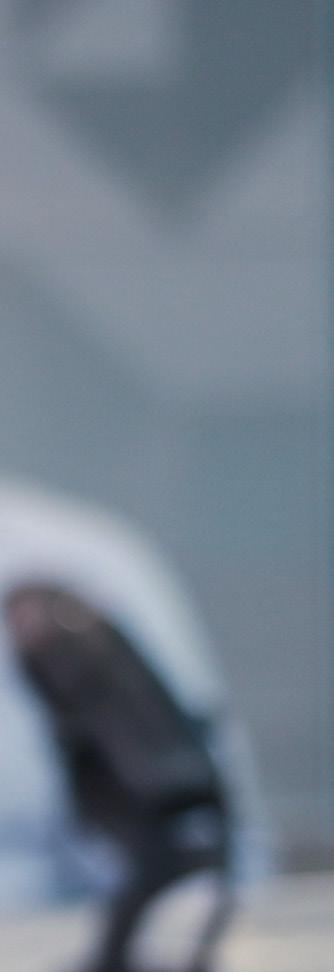
 BY PAUL OWERS
BY PAUL OWERS
Florida Atlantic faculty members play an invaluable role serving as experts to media across the country. The College of Business is an intricate part of this network. At a time when the economy, inflation and real estate are at the forefront of national importance, several of its faculty members have established themselves as top experts in providing their research to inform and educate.
Ken H. Johnson, Ph.D., associate dean; William Luther, Ph.D., associate professor; and Monica Escaleras, Ph.D., chair of the College of Business’ economics department, are some of the faculty regularly interviewed both locally and nationally on television and quoted in such publications as The Wall Street Journal, Fortune and The New York Times
“All of this enhances the public awareness of the university and promotes more informed decision-making,” Johnson said.
Johnson, an economist, co-founded three separate monthly real estate indexes that analyze U.S. home prices and rents

to show which markets are the most overvalued. He was featured in more than 4,000 news placements in 2022 for his real estate expertise, including a segment on NBC’s “TODAY,” which explained how high home prices and rents in Florida have made the Sunshine State a less-attractive spot to retire.
Escaleras, director of FAU’s Business & Economics Polling Initiative, consistently secures local and national coverage with political polls and quarterly consumer confidence surveys, while Luther is a sought-after source for his analysis of the latest inflation figures.
“Many college professors — myself included — struggle to convince students that the ideas we discuss in the classroom are of practical importance in the real world,” Luther said. “Writing op-eds and discussing current events with journalists force me to remain relevant, and the corresponding publications demonstrate to my students that these ideas really are important for their lives after FAU.”





Other College of Business professors, including Siri Terjesen, Ph.D., associate dean; Peter Ricci, Ed.D., director of the Hospitality and Tourism Management Program; and Sofia Johan, Ph.D., associate professor in the finance department, also serve as important experts for the news media.

“During an interview, the questions are very similar to those asked in the classroom,” Johnson said. “But when I explain a thorny housing issue to a reporter, for example, I have come to realize that I have just educated one ‘student’ who will now go and explain the issue to hundreds of thousands, if not millions, of people. Reporters are the perfect megaphones.”
Some of the College of Business’ faculty members also are featured in the prestigious Stanford University database of the top 2 percent of the world’s most-cited researchers. Terjesen, along with Anil Bilgihan, Ph.D., Rebel A. Cole, Ph.D. and Douglas Cumming, Ph.D., are listed in the database, which is considered one of the best ways to measure faculty research productivity and impact across 22 scientific fields of study.

Bilgihan, an associate professor of marketing, is listed in the sports, leisure and tourism category, while Cole and Cumming, both finance professors, are listed in the finance category. Terjesen, professor of management programs, is listed in business and management.



“I’m delighted that my research is considered insightful and cited by other researchers, as well as policymakers and practitioners,” Terjesen said.
Cumming noted that FAU offers an excellent opportunity for faculty to engage in research and bring novel insights into the classroom.
“The top-cited scholars’ acknowledgement is evidence that our research and teaching efforts are paying off,” he said.

Cumming and Cole both praised Daniel Gropper, Ph.D., dean of the College of Business, for providing the necessary support to enable a productive research environment.
“I am proud to be one of the four College of Business professors on this list, three of which were brought to the university by Dean Gropper, who has worked tirelessly during his tenure to improve the standing of the college,” Cole said.

Four College of Business professors are among 53 from FAU to make Stanford University’s database of the world’s most cited researchers. The other 49 FAU researchers are mainly in the sciences.



Douglas Cumming, Ph.D., joined the College of Business in 2018. He has published five books with Oxford, Wiley, and Elsevier, and more than 60 peer-reviewed articles on venture capital, private equity, hedge funds, fintech and stock market manipulation and regulation. Cumming’s work has been cited more than 23,500 times. He is the recipient of the 2022 Greater Fort Lauderdale Alliance World Class Faculty Award.

Anil Bilgihan, Ph.D., is a renowned services marketing expert with a specialization in information technology applications in the tourism and hospitality industries. His research involves the use and impact of technology, user experience, digital marketing and online social interactions in the service industry. Since joining FAU in 2013, he has published more than 90 peer-reviewed scientific articles that have been cited more than 11,000 times. Bilgihan is the author of a widely adopted hospitality information systems textbook. He is the recipient of the Cisco Extensive Research Award, Emerald Citations of Excellence Award, FAU Scholar of the Year Award and Highly Commended Award winner of the Emerald/EFMD Outstanding Doctoral Research Awards.
Siri Terjesen, Ph.D., joined FAU’s College of Business in 2019. She serves as associate dean for research and external relations, Phil Smith Professor of Entrepreneurship and executive director of the Madden Center for Value Creation. Her research on strategy, entrepreneurship and corporate governance has been cited more than 15,500 times and has garnered more than $6 million in grants and gifts. Terjesen was appointed by the U.S. president to the National Board for Education Sciences and has supervised 10 doctorate students. She is an affiliated professor to her alma mater, the Norwegian School of Economics in Bergen, Norway. Terjesen has consulted for the World Bank and multinational companies worldwide and her research has been cited in international media such as U.S. News & World Report, Businessweek and CNBC

Rebel A. Cole, Ph.D., is the Lynn Eminent Scholar
Chaired Professor of Finance in the College of Business. Prior to joining academia, he worked as a financial economist in the Federal Reserve System and as a special adviser to the Asian Development Bank, the International Monetary Fund, the World Bank and other non-governmental organizations, providing training and technical assistance in more than 60 countries. Cole has published peer-reviewed articles in many top academic finance journals, and his research has been featured in Businessweek, Financial Times, Fortune, The New York Times and the The Wall Street Journal. His articles have been cited more than 12,000 times. His primary areas of research are corporate governance, entrepreneurship, financial institutions, and real estate.
FAU Health Network is a dynamic community of experts in education, health care, science, and business, all working towards a common goal: keeping you at your best! That's why we've made it our mission to provide the best possible health care.


Our communities spoke, and we listened. They told us about their need for better access to primary care doctors, and we provided solutions. Now, we are proud to offer premium primary care services, with doctors who are dedicated to improving your health. But that's not all. We're also leading the way in innovative integrative health care, which takes a holistic approach to treating the whole person and considers all factors that impact your health and wellness.
Ready to take control of your health? Give us a call today to schedule an appointment or scan the QR code for more information. Let's work together to achieve your best health!

Florida Atlantic is improving quality of life for all by investigating and developing strategies and solutions to address various conditions that impact humans globally. From chronic pain to heart failure to healthy aging, FAU researchers are unraveling the complex interrelationship between mind, body and soul using science-based and holistic approaches.

Among these strategies is an innovative pilot project using focused ultrasound to treat chronic pain, which received a successful review from ABC’s “Shark Tank” and funding from the National Institutes of Health. Focused ultrasound is a noninvasive therapeutic technique that directs ultrasonic waves to a specific location. FAU researchers are collaborating on developing a handheld probe to provide the non-opioid-based treatment for aggravated chronic pain, also referred to as neuropathic pain, for use in a physician’s office or potentially even at home.
The device directs low-intensity ultrasound at the dorsal root ganglia, which are small bundles of nerves along the spine that control pain signals reaching the spinal cord. The handheld applicator integrates ultrasound imaging and therapy and is designed to accommodate differences in human anatomical size. As a result, the treatment device and methodology provide means for precise treatment of back and leg pain.
“Pain is one of the most common reasons patients seek medical care. Importantly, neuropathic pain, when treated with opioidbased drugs, has led to addiction in some patients,” said Julie Pilitsis, M.D., Ph.D., dean and vice president for medical affairs in FAU’s Charles E. Schmidt College of Medicine. “There is a great unmet need to provide more effective, safer and financially sustainable therapies for patients in pain. Ideally, with this therapy, patients can avoid hospitalization and days off work by reducing pain and enabling function.”
Pain also is associated with less time spent being physically active, especially in older adults. Physical activity helps prevent functional decline, frailty, falls and chronic conditions such as diabetes and cardiovascular disease. Regular physical activity also contributes to quality of life and reduced depression.
Despite these known health benefits, older adults seldom meet the physical activity guidelines of 150 minutes per week of moderate activity. Many factors affect physical activity levels among older adults. Moreover, little is known about the differences in physical activity among various racial and ethnic groups.
FAU Christine E. Lynn College of Nursing researchers conducted a first-of-its-kind study using a robust statistical approach to analyze the factors related to physical activity in a diverse sample of older adults ages 59 to 96 living independently. While prior studies have addressed the question of factors influencing older adults’ physical

 – Julie Pilitsis, M.D., Ph.D.
– Julie Pilitsis, M.D., Ph.D.


There is a great unmet need to provide more effective, safer and financially sustainable therapies for patients in pain.”
activity levels, none have employed the large range of instruments/ tools used in this study or included older adults from multiple ethnic groups.
Findings showed that age, education, social network, pain and depression were the five factors that accounted for a statistically significant proportion of unique variance in physical activity in this diverse, community-dwelling older population.
“Four of the five significant predictors of physical activity in the older adults we studied are at least partially modifiable. For example, social network, depression and pain can be ameliorated by physical activity,” said Ruth M. Tappen, Ed.D., RN, FAAN, the Christine E. Lynn Eminent Scholar and professor in the Christine E. Lynn College of Nursing. “Education may be key both in helping older adults with depressive symptoms understand that physical activity can help reduce their symptoms and in helping them to identify the types of activity that they may find enjoyable.”

One activity that older adults may find enjoyable is yoga, which evokes physical, mental and emotional awareness. For older adults with dementia, yoga can be practiced sitting or standing using a chair for support. Chair yoga combines flexibility, balance, strength, breathing, relaxation and mindfulness training.

Unfortunately, many barriers exist for this population such as a lack of transportation, living in rural areas, relying on caregivers, and especially the COVID-19 pandemic that prevented many older adults with dementia from participating in group-based in-person chair yoga classes.
Four of the five significant predictors of physical activity in the older adults we studied are at least partially modifiable. For example, social network, depression and pain can be ameliorated by physical activity.”
A research team – led by FAU’s College of Social Work and Criminal Justice in collaboration with the College of Nursing and College of Medicine – conducted an interdisciplinary study to evaluate a remotely supervised online chair yoga intervention targeted at older adults with dementia, measuring clinical outcomes virtually via Zoom under the remote guidance. The study assessed the feasibility of this intervention and explored the relationship between chair yoga and clinical outcomes of pain interference, mobility, risk of falling, sleep disturbance, autonomic reactivity and loneliness.
Participants in the pilot study took part in twice weekly, 60-minute sessions for eight weeks. They worked with a certified yoga interventionist and their caregivers and practiced breathing techniques and intentional practice, physical postures and guided relaxation and visualization.
Study results showed that remotely supervised online chair yoga is a feasible approach for managing physical and psychological symptoms in socially isolated older adults with dementia based on retention (70 percent) and adherence (87.5 percent), with no injury or other adverse events.
“Our telehealth-based chair yoga intervention was found to be convenient for both participants and their caregivers because it was easily accessible from home and did not require transportation or getting dressed, which reduced caregiver burden and stress,” said Juyoung Park, Ph.D., professor in the Phyllis and Harvey Sandler School of Social Work in FAU’s College of Social Work and Criminal Justice.
Our telehealth-based chair yoga intervention was found to be convenient for both participants and their caregivers because it was easily accessible from home and did not require transportation or getting dressed.”


 – Juyoung Park, Ph.D.
– Juyoung Park, Ph.D.


By once again combining disciplines — specifically engineering and nursing — a new FAU device is showing great promise for monitoring heart failure. More than 64 million people worldwide suffer from heart failure, which is a progressive clinical syndrome characterized by a structural abnormality of the heart, whereby it is unable to pump sufficient blood to meet the body’s requirements.

Researchers from FAU’s College of Engineering and Computer Science and College of Nursing have developed a prototype of a novel wearable device that continuously monitors physiological parameters associated with heart failure in real time.

The technology is based on sensors embedded in a lightweight belt conveniently worn around the waist to monitor thoracic impedance, electrocardiogram, heart rate and motion activity detection. The system uses different sensors to monitor these parameters. Researchers tested the wearable device in different conditions including sitting, standing, lying down and walking. For each condition, results were obtained for each of the sensors sequentially. The physiological parameters selected are significant in determining heart failure symptoms.
Findings show the sensors kept track of changes for all of the different conditions. The position sensor correctly highlighted the change in position in different conditions and could be used to identify different states of the wearer of the device.
“All of the sensors we integrated into our belt module can easily be worn for a long time without affecting the patient’s daily activities,” said Waseem Asghar, Ph.D., associate professor in FAU’s College of Engineering and Computer Science. “Importantly, continuous and real-time monitoring of heart failure symptoms could alert patients and their health care providers of the patient’s declining health. In turn, health care providers could intervene with medications to avoid patient hospitalization.”
Across the spectrum, FAU’s commitment to optimal health and healing focuses on the whole person to provide solutions for a range of chronic physical and mental conditions. Through integrative health practices, patients and participants can take more control of their own quality of life rather than relying solely on pharmaceuticals or invasive procedures.
Two FAU centers in particular — the Robin Rubin Center for Happiness & Life Enhancement and the Marcus Institute of Integrative Health at FAU Medicine — are dedicated to enriching and nurturing physical, mental, emotional and spiritual well-being.
 – Waseem Asghar, Ph.D.
– Waseem Asghar, Ph.D.
Continuous and real-time monitoring of heart failure symptoms could alert patients and their health care providers of the patient’s declining health.”
The Robin Rubin Center for Happiness & Life Enhancement was established to broaden the reach of Rubin’s initial goal — to teach the skills and tools of happiness and, more importantly, how to put them into practice. Rubin, a two-time FAU alumna and instructor in the Sandler School of Social Work, provides a space within her center where students, faculty, staff and community members can enhance and improve their well-being while fostering a culture of authentic connection. Among the complimentary programs offered to the public are weekly meditations, in-person yoga classes, and monthly wellness workshops — all designed to empower participants to prioritize self-care.
At the Marcus Institute of Integrative Health at FAU Medicine, FAU physicians provide an evidence-based, patient-centered approach to care that may include conventional, as well as nonpharmaceutical treatments. These complementary approaches provide physicians with the best methods for providing wellcoordinated care.
Common integrative health services include osteopathic manipulation and massage, yoga, meditation, culinary medicine, and nutrition and dietary guidance. Patients may seek integrative health services for conditions such as back, neck or joint pain; arthritis; anxiety; cholesterol and heart disease; head or chest colds; other musculoskeletal issues; headaches and migraines; and insomnia, for example. Patients who seek an integrative health
physician tend to experience difficult-to-treat conditions and have tried conventional treatments with little or no success of longterm improvement.
The Robin Rubin Center for Happiness & Life Enhancement and the Marcus Institute of Integrative Health recently joined forces to provide the second annual “New Year Wellness Series for Mind, Body and Spirit.” The program focused on emotional, nutritional, mind/body, spiritual and mental wellness as well as brain health.
“Thank you all at FAU for the wonderful mindful series each Friday. They have truly helped me get through this year more calmly and more grounded, and I have experienced much needed peace and comfort,” said Pamela Harvard, program attendee. “With a sister in the hospital, working full time, car breaking, and so many other issues, being able to rely on faith and the things I’ve learned in the meditation series and lectures were so helpful to me. It’s been a truly uplifting and welcoming portion of my week.”

Learn more:
Robin Rubin Center for Happiness & Life Enhancement: www.fau.edu/sw-cj/ssw/happiness
Marcus Institute: www.faumedicine.org/integrative-health
 BY ALYSE COOKE
FAU’s Leon Charney Diplomacy Program Paves Path to Leadership for Student Delegates
BY ALYSE COOKE
FAU’s Leon Charney Diplomacy Program Paves Path to Leadership for Student Delegates
Winning five national titles and dozens of conference awards, Florida Atlantic University’s Leon Charney Diplomacy Program has set a new standard of excellence at the annual National Model United Nations (NMUN) diplomacy competitions.

More than 400 colleges and universities compete each year at the world’s largest and oldest ongoing university-level Model UN, and Florida Atlantic is one of the few institutions to achieve such high levels of accomplishment. Through rigorous diplomacy training in a world-class educational setting, the FAU team is not only leading the NMUN, but is preparing to lead future generations.
The Diplomacy Program was established in 1996 by Jeffrey Morton, Ph.D., professor in FAU’s Dorothy F. Schmidt College of Arts and Letters and Pierrepont Comfort Chair in Political Science in the Harriet L. Wilkes Honors College. It has had monumental success over the years including consistently being recognized as the top program in the nation.
Amid the circumstances of the COVID-19 pandemic, FAU won the NMUN’s virtual competition in 2020, which secured the program’s second national title since 2018. The program then achieved an unprecedented triumph in the competition’s 95-year history in 2021, winning first place at both the Washington, D.C. and New York conferences in the same academic year.

Following up with another first-place finish at the November 2022 conference in Washington, D.C., the program achieved its fifth national title and preserved its status as the top-ranked academic diplomacy program in the country. The program also received seven delegation awards during this competition, recording a total of 66 national and international awards for academic excellence to date.
“There are so many variables that go into a nationally competitive academic program,” Morton said. “Chief among them are quality students willing to undergo intense training, support from the community and experienced leadership.”


During diplomatic competitions, delegates are assigned roles to perform and countries to represent. To prepare, students compose a portfolio that includes country information, topic backgrounds and country profiles that are judged by conference organizers. Full participation requires delegates to make speeches, draft resolutions, negotiate with allies and adversaries, and navigate rules of procedure — all in the interest of mobilizing cooperation to resolve problems that affect people around the world.
With more than 100 different countries, as well as a multitude of backgrounds represented at FAU, intercultural competencies are reinforced each time students come to campus. For the Diplomacy Program’s delegates, these connections allow them to build on their formal training through exposure to different beliefs, identities and ideas.
Isabella Olofson-Ring, a distinguished delegate majoring in political science and cybersecurity, was keen to leverage her leadership experience with the FAU Student Government’s Multicultural Programming Board.

“This organization has prepared me for diverse opinions and identities,” she said. “It prepared me for conferences such as NMUN and to respond well to criticism, change and substance.”
With a strong multicultural foundation, FAU’s students are primed to succeed as global citizens — whether they are attending competitions or taking charge in their communities. For the Leon Charney Diplomacy Program, it has translated into multiple conference titles and national attention.
“Experiential learning for our students in the Leon Charney Diplomacy Program uniquely prepares them for myriad careers in which research, presentation of complex ideas, and cross-cultural negotiation are key elements of success,” said Michael Horswell, Ph.D., dean of the Dorothy F. Schmidt College of Arts and Letters. “Dr. Morton and his colleagues have mentored our students to an unprecedented level of national titles, and we are very proud of that achievement.”

– Isabella Olofson-RingFAU students Andrew Chambers, Gianna Kohn and Maxine Nichols
This organization has prepared me for diverse opinions and identities. It prepared me for conferences such as NMUN and to respond well to criticism, change and substance.”ISABELLA OLOFSON-RING


FAU’s student delegates are more than just NMUN champions — they’re taking their talents into the world to enact meaningful change.

“I have students who intend to be surgeons, lawyers, investors, government officials, academics and officers in the military,” Morton said. “My goal is to convince them on day one that the skills this program teaches are applicable in every professional walk of life.”
Bernard Harrigan, member of the program’s 2021-22 NMUN National Championship Team and recipient of the competition’s Outstanding Delegate award, said he is passionate about combating environmental issues such as the devastation of Florida’s barrier reef systems. He is pursuing a bachelor’s degree in environmental justice and social change at the Harriet L. Wilkes Honors College on FAU’s John D. MacArthur Campus in Jupiter.
As a Morton Research Fellow, Harrigan conducted important undergraduate research on climate change and diplomatic relations regarding law and jurisdiction. His work seeks to

make the world a more equitable and inhabitable place by cultivating community engagement and developing more sustainable solutions for the environment.
“My experience in the Leon Charney Diplomacy Program was one filled with excellence,” Harrington said. “The training and competitions raised my confidence to a greater level, and because of it, I was awarded a national Udall Scholarship — the first in FAU history.”
Harrigan’s success is not unprecedented for students in the program. Upon graduation, many delegates continue to leverage their skills in careers with major international organizations such as the United Nations, NATO and the International Civil Aviation Organization. Among the opportunities available to students of this caliber, several alumni have become professors, ambassadors, senators and other highly respected professionals.
“The program had a tremendous impact on my academic and career plans,” Olofson-Ring said. “Before the program, my route was law school. Now I plan to attend graduate school to achieve a degree in foreign relations and pursue a career in diplomacy.”
Florida Atlantic representatives at a recent diplomacy conference, from left: Francesca Val, Regina Francis, Vaden Hughes, Emaad Khan, Vesal Farsian and Anna MurphyMy experience in the Leon Charney Diplomacy Program was one filled with excellence. The training and competitions to a greater level, Udall Scholarship — the first in FAU history.”BERNARD HARRIGAN
My experience in the Leon Charney Diplomacy Program was was transformational. I am more excited than ever about my commitment to public service and my passion for international issues.”
– Kyle Webb
Charney’s family continued his extraordinary legacy with a $1 million gift in 2017, which established three Leon Charney Scholarships and created an Undergraduate Honors Program delegation, as well as an FAU High School delegation.

“This gift transformed the program into a multi-college, university-wide endeavor,” Morton said.
With his name serving as a reminder of one’s ability to champion peace, members of FAU’s Leon Charney Diplomacy Program are prepared to continue his mission for generations to come.
family’s provide student delegates with the necessary resources to achieve.
“The Leon Charney Diplomacy Program benefits significantly from the support of donors who help to fund our trips each year,” Webb said. “This provides opportunities for students to attend the conferences at no additional cost and allows us to focus on the necessary preparation to succeed.”
Learn more about ways to support the program’s success: fauf.fau.edu/diplomacy


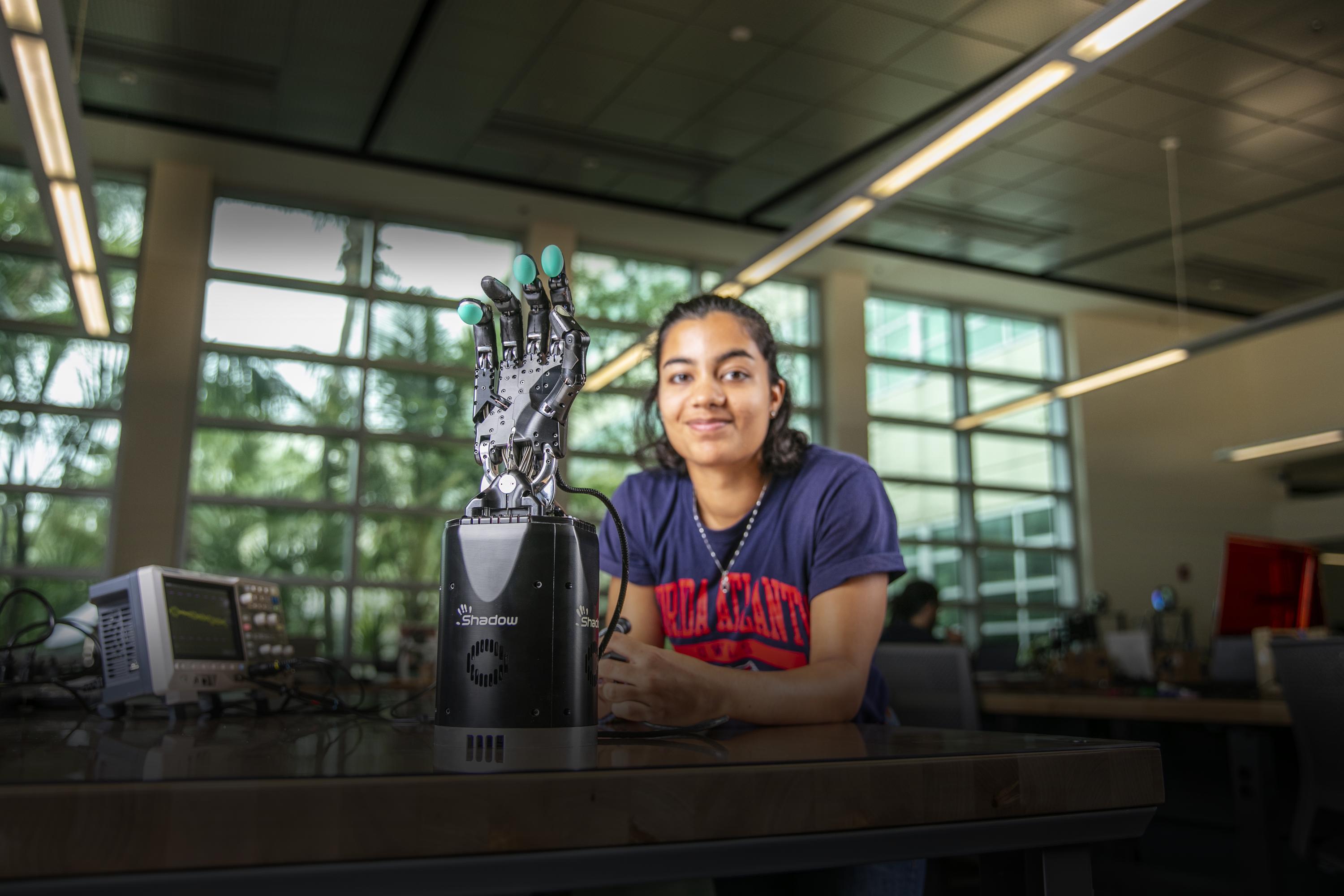

BIG CHALLENGES
EVEN BIGGER THINKING
fau.edu/research/research-daily
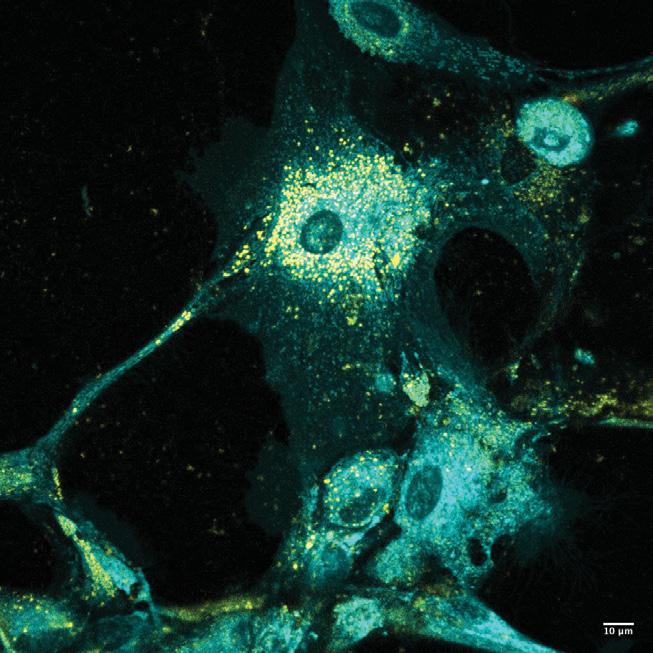
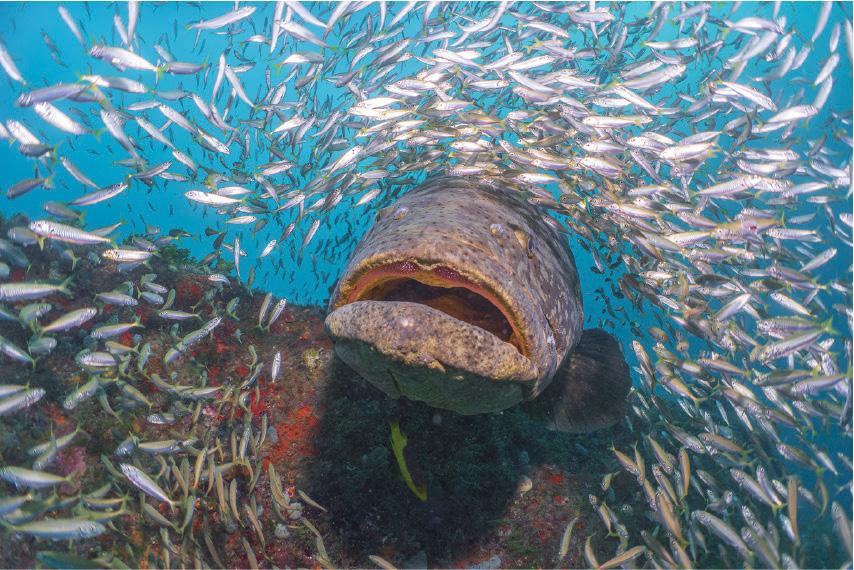
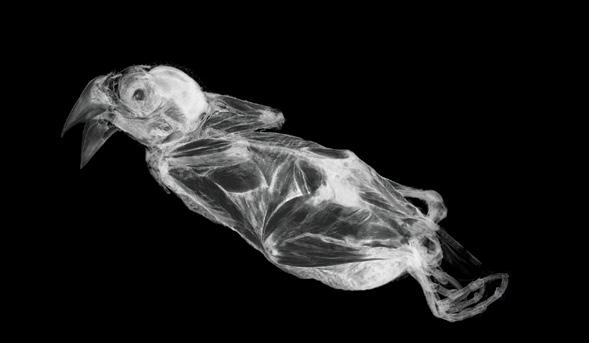


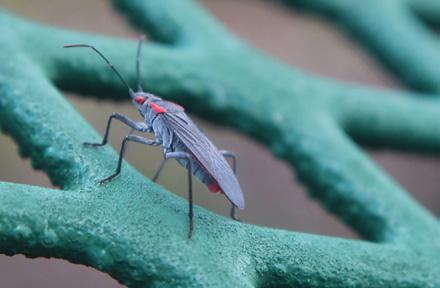


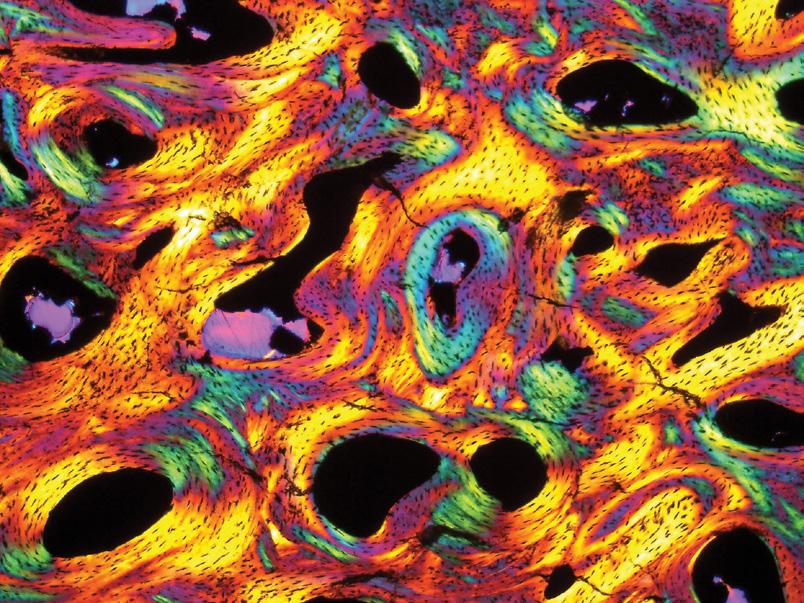
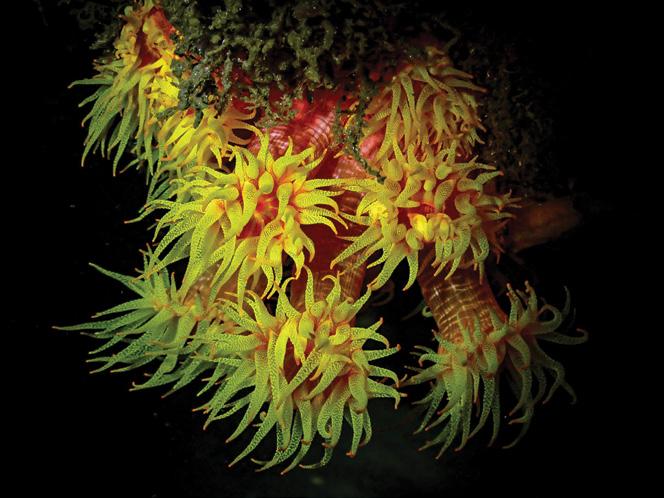



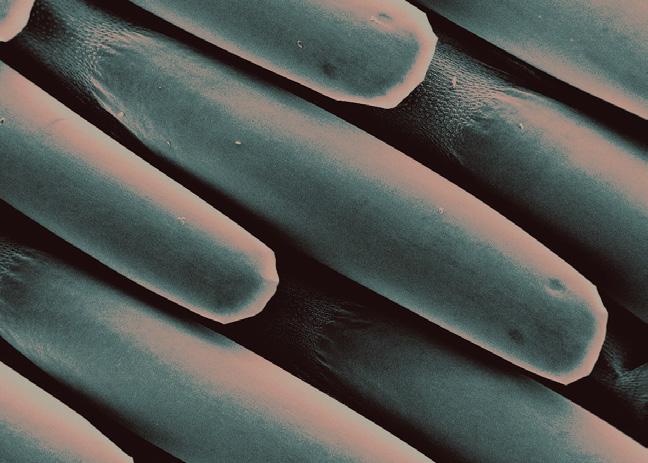


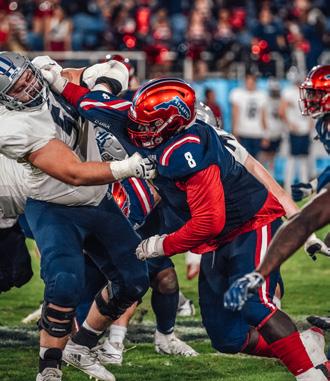


om Herman’s philosophy is simple: football is a tough physical game, but preparation only takes you so far. It is the love for and from the coaching staff that lasts, and it is just as important as the conditioning, strategizing and preparation that goes into a game.

As Florida Atlantic’s new Hagerty Family Head Football Coach — its eighth head coach in program history — Herman plans to guide the team with tough love, just the way he learned. Growing up in California, Herman’s football coaches were his role models on and off the field. They were the men who impacted his life the most, which is evident through the strong leadership that he consistently displays.


“I just learned about how important truly caring for your players was,” said Herman, who last led the Texas Longhorns as head coach prior to coming to FAU. “I learned that from Coach [David] Bailiff about how important people are and that has made a huge impact on me.”
As the Owls prepare to begin the 2023 football season, and their inaugural year in the American Athletic Conference, Herman wasted no time quickly assembling the most experienced and dynamic football coaching staff and team since the program’s inception in 2001. He learned everything about each of the
current players and jumped right into recruitment, building a program based on a winning formula for this new era. Herman solidified the team’s December 2022 signing class with 16 players who will represent the Owls in 2023.
“Moving to the American Athletic Conference from Conference USA is extremely important for the trajectory of our program. You’ve seen schools follow this roadmap. I was at the University of Houston. They were Conference USA, American Conference, and now the Big 12,” he said. “I don’t want to put the cart before the horse by any stretch of the imagination. We have to

crawl before we walk, walk before we run, run before we sprint. We can do that. The neat thing about this job is that the transition is a little bit smoother than others because of the infrastructure that’s already in place.”
Under the leadership of the legendary Howard Schnellenberger, inaugural head coach and founder of the FAU football program, the Owls began play in 2001; hosted a Football Championship Subdivision semifinal game in 2003; began the move to the Football Bowl Subdivision (FBS) in 2004; moved to the Sun


As an experienced football player and coach, Tom Herman has multiple wins, including:
2015 AT HOUSTON: Chick-fil-A Peach Bowl: 38-24 vs. No. 9 Florida State
2018 AT TEXAS: Allstate Sugar Bowl: 28-21 vs. No. 6 Georgia
2019 AT TEXAS: Valero Alamo Bowl: 38-10 vs. No. 11 Utah
Belt Conference in 2005 and played their first full FBS season in 2007. Also that year, they captured not only their first conference championship, but became the youngest upstart program to earn a bowl berth — to the New Orleans Bowl — and win in the same year. A win at the Motor City Bowl followed in 2008, and the opening of FAU Stadium on the Boca Raton campus was celebrated in 2011. The Owls joined Conference USA in 2013, and in 2017 and 2019, they captured the C-USA championship and won the Boca Raton Bowl.
Herman’s success in the world of college football is no secret. He comes to Florida Atlantic with a .711 career winning percentage as a head coach, along with a 2014 National Championship as the offensive coordinator for the Ohio State Buckeyes. He ranks among the nation’s current elite winners with a 54-22 record over his six seasons as a head coach, is 5-0 in bowl games — and 3-0 against
Top 11-ranked teams — and is known as a prolific recruiter and offensive mastermind. His career began as a wide receivers coach with Texas Lutheran in 1998. In 2015 he became head coach of Houston and then Texas in 2017, before serving as an offensive analyst for the Chicago Bears and a television analyst for CBSSN.
“We are incredibly excited to welcome Tom Herman to paradise,” said Brian White, vice president and director of athletics at FAU. “Throughout the process and the more we talked with Coach Herman, the more it became apparent to me that he was the right person to lead our football program. Beyond his knowledge of the game, which is obvious by his success over the years, he also truly cares about the young people in his program. He has coached winning programs everywhere he has been and we believe he can be tremendously successful at FAU, as well.”

“We are incredibly excited to welcome Tom Herman to paradise.”
– Brian White, vice president and director of athletics at FAU

Athletics received a $5 million gift commitment from Michelle and Michael Hagerty to fund renovations and improvements to several facilities, which will now be known as the Hagerty Family Athletics Village. This gift builds on the Hagertys’ previous $2.5 million contribution to FAU football in 2021, which named the Hagerty Family Head Football Coach.
The Hagertys said they are honored and excited to continue their commitment to

the young men and women representing Florida Atlantic University as studentathletes. This gift is meant to ensure that all student-athletes are able to enjoy and thrive in world-class sports facilities.
Included in the Hagerty Family Athletics Village footprint are the track and its related facilities, now known as the Hagerty Family Track and Field Complex; Tom Oxley Athletic Center; Abessinio Court at the Eleanor R. Baldwin Arena; Kimberly V. Strauss Tennis Center; FAU Swimming

Facility; FAU Softball Stadium; FAU Soccer Stadium; FAU Baseball Stadium; and FAU Beach Volleyball Complex.
“We cannot thank Michelle and Michael enough for this incredible gift,” said Brian White, FAU vice president and director of athletics. “We have nearly 450 student-athletes at Florida Atlantic, and every one of them will reap the benefits of this gift. It will truly be transformational for many of our facilities and sports programs.”
A shared love of sun, sand, fishing and good beer. While it sounds like the theme to a Jimmy Buffett or Kenny Chesney song, it’s also what led a trio of FAU alumni to brew up the idea for Islamorada Beverages.

The Islamorada Beer Company, its original name, was born during weekend fishing trips to the Keys in the mid-2000s. Conversations about needing a lighter craft beer to complement their tropical “fun-in-the-sun” lifestyle turned FAU college friends Tyrone Bradley ’08, ’13, Chris Trentine ’05 and Whitney Trentine ’07, along with their friend, Nik Schroth, into business partners.
Fast forward less than a decade later, and this crafty idea has turned into a successful brewery and distillery company, where an Island State of Mind™ can be found in a bottle – or a can – across Florida.
“We started this company as a part of what we already did: hanging out and going to charity events, football games, and the sandbar on
the weekends,” said Chris Trentine, an Islamorada native. “It all came to fruition from our lifestyles, and the brand is now part of our lifestyle.”
The group opened its first location, a tasting room, in 2014 in Islamorada at Mile Marker 82 with its flagship beer, Sandbar Sunday, an American wheat ale named for the popular sandbar gatherings of boaters off Islamorada Key. Two other island-themed flavors were added to the menu: Islamorada Ale, an island citrus ale, and Channel Marker IPA, an India pale ale. Within a year, the brewery was designated the No. 9 top place to visit in Islamorada by TripAdvisor, where today it remains a “Travelers’ Choice” and is currently ranked
Top: Commitment to community and hurricane relief

No. 3 for top attractions on the popular travel website.
A second site opened in 2016 in Fort Pierce. It not only had a tasting room, but also a full production facility with brewing capacity for 75,000 barrels — or nearly 1 million beers per year — making it the largest craft brewery on the Treasure Coast.
After creating 10 additional beers and achieving success in this space, the company took things one step further and ventured into distilling and producing spirits. Islamorada rum, vodka and gin were soon earning national recognition and awards. The company also launched Crooked Palm Distillery to include canned cocktails and non-alcoholic keg cocktails on draft.
Today the company has grown from three employees to more than 100, with 3,500 distribution points across Florida and a third brewery and distillery under construction.
The three alumni credit their educational and student-life experiences at Florida Atlantic with the incredible success of their growing businesses. As undergraduates, they each gained invaluable knowledge through the classes they shared in the College of Business.
Bradley’s business acumen, along with his B.B.A. and MBA degrees from FAU, have been instrumental in his ability to guide the overall strategy and direction of the company as its CEO.
As the owner of a construction company, Chris Trentine’s business background and experience have been a huge part in the successful planning and execution of the building of the Islamorada Beverages’ facilities.
Whitney Trentine, who oversees the South operations, is affectionately deemed as “the glue” by her co-founders. While pursuing her bachelor’s degree in business at FAU, she held internships in the President’s Office and at the Eleanor R. Baldwin House, which she said taught her valuable life lessons.
Their relationships also were strengthened through their dedicated involvement in FAU’s Greek organizations. The Trentines met through Greek life – he was president of Alpha Tau Omega, while she was president of Alpha Xi Delta. The two married in 2012. Bradley served as vice president of finance for his fraternity, Sigma Phi Epsilon.
“Greek life was one of those critical parts of all our lives because it got us together,” Bradley said. “The Greek system helps build a community and friendship and teaches you a lot of values.”
The co-founders also are passionate about philanthropy. They support the Florida Keys community through charity fishing tournaments, donate at events for local schools, and give assistance and relief during hurricanes; they also give back to their alma mater.
Islamorada Beverages regularly provides drinks for FAU Alumni Association athletic tailgates and events, and in 2015, they established the Gotta Luv Them Alumni Scholarship Endowment Fund from their nonprofit, Gotta Luv Them, Inc. The fund awards scholarships to students active in social or academic Greek life at FAU.
“We just wanted to be able to give back to students in an area that brought all of us together,” Whitney Trentine said. “Hopefully they cultivate the same relationships.”
The Islamorada team’s philanthropy and innovation merged once more in 2021 on the heels of the NCAA’s decision to allow college athletes to accept Name, Image and Likeness sponsorships and deals. The company made history with the signing of then-FAU quarterback N’Kosi Perry as the first college athlete sponsored by an alcohol company.

“Signing Perry was another one of those innovative things that we were trying to do right,” Bradley said. “Traditionally, we don’t really spend a lot of money on paid marketing. We try to do grassroots type of marketing to portray the ‘island state of mind.’ Twitter went crazy. It was the highest reach we’ve ever had as a company, and it wasn’t just in the U.S. — it went global. It was a great partnership.”
When asked what they’re most proud of, the group agreed that the growth of the company, their positive impact on employees, providing good memories for customers, and most importantly, how their friendships forged at FAU continue to endure, were top of the list.
“Partnerships can seem very hard, but for us it’s very easy,” Bradley said. “We see what others need, and we try to get involved and help each other. We have worked very well together in all the times we’ve been partners. At the end of the day, we put our friendship first.”





For the first time in more than 20 years, Florida Atlantic University is undertaking a universitywide, comprehensive fundraising campaign that is designed to enrich and enhance all facets of the university community. By defining tomorrow’s challenges and preparing for them today, FAU is fostering opportunities for students, faculty and the greater community that will have far-reaching impacts for this generation and beyond.
Florida Atlantic’s tradition of philanthropy is as old as the university. Just over 60 years ago, the Florida legislature approved the creation of the university; however, it did not provide funding for its planning, design or construction. It took the generosity and commitment of local leaders, led by Tom Fleming and Charles Schmidt, to turn the dream of a public university in Boca Raton into a reality. Thanks to their leadership and determination, community leaders were able to
raise nearly three times more than was necessary to make Florida Atlantic a reality. It is due to that incredible outpouring of philanthropy that FAU can fulfill its purpose and mission today. This served as an inspiration for the current fundraising campaign, “Transcend Tomorrow: The Campaign for Florida Atlantic University,” which launched publicly on Dec. 6, 2022, and aims to raise $600 million for the university with a focus in three key areas: FAU Health, scholarships and student success, and the environment.
“Philanthropy has always played a crucial part in the growth of FAU,” said Chris Delisio, vice president of institutional advancement and CEO of the FAU Foundation, Inc. “Through ‘Transcend Tomorrow,’ we are able to focus our fundraising endeavors and prepare for the needs of the future.” n

Beginning with its inaugural class of students in 1964, Florida Atlantic University has provided life-changing education, especially for those who may have thought a college degree was out of reach. College degrees do come with a cost; however, the expenses go far beyond tuition. Housing, meals, books and fees can quickly add up, preventing bright, talented students from graduating or even starting their degrees. By addressing barriers to academic success, FAU can provide access and opportunity to life-changing education regardless of a student’s socioeconomic status. By also strengthening support systems that include personalized mentoring and counseling, FAU provides a whole host of wraparound services that ensures a student’s success in the classroom and, ultimately, in the workplace.
FAU Health: Preparing for the Health Care Needs of Tomorrow


Florida’s population is growing, which creates additional pressure on its health care system. With an increased demand for physicians, and a projected shortfall of registered nurses and licensed practical nurses by 2035, the state will struggle to meet basic health care needs. FAU Health is a collaborative endeavor that brings together several of the university’s health, research and social science programs by creating a dynamic and formidable force to solve tomorrow’s challenges today. By educating and training critically needed health care workers, and facilitating collaboration and innovation for research from bench to bedside, FAU can solve tomorrow’s health care challenges today.
Environment: Protecting Our Natural Resources
South Florida’s diverse landscape, which includes fast-growing and low-lying landscapes, the Everglades and the Atlantic Ocean, has significant influence on human health and the health of the economy. Issues such as water quality, sea-level rise and increasingly severe and frequent storms will be factors affecting environmental health for generations to come; hence, the need to increase environmental education, awareness and stewardship to preserve and protect our natural resources. By making the environment a funding priority, and encouraging collaboration among disciplines, we can tackle pressing environmental issues today to ensure a better tomorrow.
With an aging population, the need for skilled physicians is greater than ever. Thanks to an extraordinary gift of $28 million by Anne and John Wood to support medical education scholarships, more medical students at FAU will be able to start their careers completely free of debt.
“I have wanted to be a doctor since I was 2 years old. I have had the support of my parents, family and teachers. Now, I have the support of Mr. and Mrs. Wood so that I can attend medical school and not worry about having an overwhelming amount of debt. They have given me much more than a scholarship; they have given me faith.” - Jessica Baran, first-generation student and member of the College of Medicine’s class of 2025
“Our goal of $600 million is ambitious; however, FAU has a strong tradition of incredible support from friends of the university,” said FAU President Stacy Volnick, Ph.D. “‘Transcend Tomorrow’ enables Florida Atlantic to think bigger, be bolder and achieve more for our students and faculty which ultimately benefits the greater community and the world.”
For more information about Transform Tomorrow: The Campaign for Florida Atlantic University or to give a gift, visit transcendtomorrow.fau.edu
Two-time Florida Atlantic University alumnus Arthur C. Evans Jr., Ph.D., is an outspoken proponent for psychological science and mental health. The longtime health care innovator has served as the chief executive officer and executive vice president of the American Psychological Association (APA) since 2017.
“I have often said that I feel like I was born to be a psychologist, so it is an honor and a privilege to be the CEO of the leading scientific and professional society representing psychology in the United States, with more than 145,000 researchers, educators, clinicians, consultants and students as members,” Evans said. “It is also a huge responsibility, and I am fortunate to work with about 550 employees helping the APA meet its mission of using psychology to benefit society and improve lives. Together, we carry out and implement a range of activities that are based on policies that are developed by our member leaders.”
Prior to his role at the APA, Evans served as commissioner of Philadelphia’s Department of Behavioral Health and Intellectual disAbility Service for 12 years. He has held faculty appointments at the University of Pennsylvania’s Perelman School of Medicine, the Philadelphia College of Osteopathic Medicine, the Drexel School of Public Health and Yale University School of Medicine. Evans is the author or co-author of numerous peer-reviewed research articles, chapters, reviews and editorials. He also has been recognized nationally for his work in behavioral health care policy and the transformation of service delivery systems.
Evans graduated from Florida Atlantic with his bachelor’s degree in psychology in 1982 and his master’s degree in experimental psychology in 1984. He earned a doctorate in clinical/community psychology from the University of Maryland. In 2017, he was inducted into the Florida Atlantic University Alumni Hall of Fame in recognition of his research, community activism, policy and cross-system collaborations to change the status quo and improve mental health outcomes.
“FAU was critical to my career,” Evans said. “I found it to be a supportive place that provided many opportunities for growth and leadership. The training that I received in experimental psychology — both a B.A. and an M.A. — was outstanding and provided a strong foundation for my doctoral training in clinical and community psychology. I am forever indebted to the university for the career and life it has afforded me.”
The trailblazing health care advocate shared some insights to promote and improve mental health, both individually and in our communities.
Q: Why is it important to maintain not just physical health, but also one’s mental health?
A: There is a wealth of scientific research showing a very clear connection between physical and mental health — for example, the relationship between psychological conditions and experiences like stress, depression, anxiety, trauma and discrimination and physical health outcomes, like inflammation, hypertension and heart disease. The most effective treatments and exercises are those that recognize both the mental and physical components of health. The more we can reinforce and communicate these links to the public — and to the broader health care system — the more likely we are to put people on the road to good overall health.
Q: What do you see as the future of mental health and psychology? What current trends do you see in this field, or permeating through society, that are promising?
A: Right now, our nation is wrestling with so many complex societal issues — recovery from the pandemic, a challenging economic environment and continuing concerns about racial justice, to name a few — all of which are connected to people’s mental health and well-being. Additionally, if we think about the vast unmet mental health needs that existed before the pandemic and recognize how the pandemic has only exacerbated these problems, it is clear that doing more of the same is not the answer.
This is the reason that the APA recently adopted a policy to promote population health as a framework. It was developed out of a recognition that we must address the mental health of the entire population, not just those who have a diagnosable condition or are in crisis. This means that — in addition to ensuring access to effective clinical care — we put greater emphasis on prevention, early intervention and mental health promotion.

I am optimistic that the future of mental health is bright if we embrace this kind of population health approach. It will lead to more people reaching out for and receiving care when and where they need it, less stigma around mental health, greater attention to proactive prevention like building resilience in children, and people taking more ownership over having good mental health in the same way many people pay attention to having good physical health.
Q: What are some key practices you recommend incorporating into one’s routine to ensure optimal self-care and mental well-being?
A: Many of these practices sound like common sense, but they are actually rooted in psychological research and shown to benefit well-being. One of the most important factors involved is social support, spending time — even on the phone or virtually — with family and friends who make you feel safe and happy.
It’s also important to eat well, exercise and get enough sleep. Practice mindfulness. Spend time in nature. Be aware of time spent on social media and screen time and set personal limits. Be kind to others and to yourself. Hug your kids, your partner, your friends. Intentionally spend time doing the things that you love and don’t feel guilty. Sometimes, we are so focused on our never-ending “to do” list that we don’t stop to enjoy life, believing that we can’t afford the time to focus on ourselves. The reality is that we can’t afford not to.
Q: What should we do to break through those low periods to avoid more serious anxiety or depression, especially for those who may have experienced trouble isolating themselves during COVID-19?
A: Ensuring time and attention to take care of oneself sounds selfish and frivolous to some, but it’s critical for ensuring good mental health for ourselves and those around us. The underlying premise is that we can do better — as employees, as parents, as partners — if we take some time to care for ourselves in meaningful ways. That care looks different for different people — time alone listening to music, being with friends, connecting with our faith community, staying physically active, etc. Replenishing our well-being and building resilience should be something routine and ongoing, so we can more successfully navigate those “low periods” when they occur.
It’s important to emphasize that psychologists and other mental health professionals can help, too. For some, their anxiety or sadness impairs their daily functioning, so therapy is critical for getting through the low periods. For others, it’s a tool that enables them to try to be their best selves. In short, don’t be afraid to ask for help, whether that’s from a licensed psychologist or other licensed mental health provider, or your family and friends, your pastor or other religious leader, etc.
Q: What can we do with our families, friends and in our workplaces to make mental health more approachable, inclusive and part of the conversation? Why is this so important?
A: We must normalize mental health and see it as a part of our overall health. We can do this by talking to each other when we are concerned about our mental health, or when we see someone struggling — and listen, which I can’t emphasize enough. If a friend tells you that they are OK, don’t be afraid to probe. You can ask, “Are you sure?” especially if you know someone has been having a hard time. Let people know you are open and available to talk about mental health issues. Part of this involves helping people understand that mental health is not necessarily about mental illness, but is an important aspect for everyone’s well-being.
‘‘Mental health is not necessarily about mental illness, but is an important aspect for everyone’s well-being.”
Florida Atlantic recently welcomed 72 alumni back to campus to celebrate the 50th anniversary of their graduation. As part of the university’s signature homecoming events, the Florida Atlantic University Alumni Association inducted the classes of 1970, 1971 and 1972 into the Majestic Owls Society. The Majestic Owls Society was established in 2015 to celebrate the 50th anniversary of each graduating class from Florida Atlantic, beginning with the class of 1965.


The three classes participated in an induction ceremony, luncheon and campus tour, in addition to other Homecoming 2022 and Owl Family Weekend events. As a token of gratitude for their dedication to their alma mater, each Majestic Owl received a commemorative medallion.


“It was an honor to celebrate with our accomplished alumni and mark the occasion of their golden anniversaries,” said Katie Burke, Ph.D., assistant vice president of alumni and community engagement. “These distinguished members of our Owl family have made us who we are as an institution and are an integral part in the university’s growth and success.”






Charles Ghigna, English ’67, master’s in English education ’70, also known as “Father Goose,” is the author of more than 100 books for children and adults. His new book is “The Father Goose Collection of Poetry.” A collection of his children’s poetry, it features gold-gilded pages, a builtin ribbon bookmark, and a subject index for librarians, teachers and parents. Ghigna lives in a treehouse in Alabama.

Ed Silverman, education ’71, has been living and working in Sonoma County, California, since 1973.
Jasmine Lynch, education ’71, master’s in education ’79, retired as a guidance counselor at Suncoast High School after more than 36 years as an educator in Palm Beach County. She served as associate pastor of the West Palm Beach Seventh Day Baptist Church since 2014 and was a hospice volunteer for several years.

Bill Penney, finance ’78, has been president and CEO of Marine Bank in Vero Beach since 2010. He currently serves as chairman of the Florida Bankers Association.
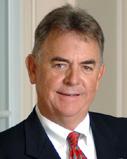
Rick Ferrell, ocean engineering ’83, retired from the Naval Sea Systems Command Naval Surface Warfare Center in Crane, Indiana, with more than 39 years of federal government service.
Kyle Forbes, education ’92, master’s in education ’07, is the head baseball coach at Palm Beach State College. He recently earned his 600th win as a college baseball coach.

Clara Bennett, international business ’04, received the corporate award on behalf of the Boca Raton Airport Authority from the Hispanic Entrepreneur Initiative. She is executive director at Boca Raton Airport Authority.
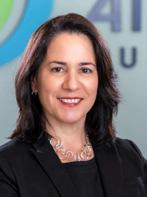
Christina Rose Cernansky, political science ’04, was nominated for “Woman of the Year” by the Idaho Business Review for her work in suicide prevention. She has lived in Idaho for seven years.
Terry Dooley, master’s in history ’09, volunteers at the Elliott Museum in Stuart, which celebrates the history of the surrounding area through art exhibits, a collection of antique cars and more.
Did you get married, have a baby, start a new job, receive an award, or experience some other big life moment or personal victory recently?
Send your news, including full name, graduation year, college or major, and highresolution photos (at least 300 dpi) to FloridaAtlanticMag@fau.edu.
David J. Haycock, finance and real estate ’02, was named regional vice president of sales, B2C - East Region, at MASA MTS. The company is based in Plantation, and provides coverage for emergency medical transportation.

Erick Solmes, management information systems ’06, received the Outstanding Small Business award from the Hispanic Entrepreneur Initiative. He is the president of Simplitfy, an information technology professional managed service provider.
Rebecca Tobin, master’s in exceptional student education ’13, lives in Broward County, and is a special education teacher for Broward County Public Schools.

Janet Young, communications ’20, is a financial analyst and part-time yoga and meditation teacher.
Sharonda Boone, MBA and M.H.A. ’22, was promoted to director of corporate compliance for AmeriHealth Caritas Family of Companies. In her new role, she oversees Medicaid and Exchange health plans in Florida, South Carolina, North Carolina, Louisiana, Michigan, Ohio and Delaware.
In April 1965, Florida Atlantic’s first graduating class of 30 students received their bachelor’s degrees in business, education, humanities or science. Today, the University has more than 190,000 alumni, offers more than 170 degree programs and awards more than 8,000 bachelor’s, master’s and doctoral degrees annually.
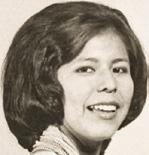
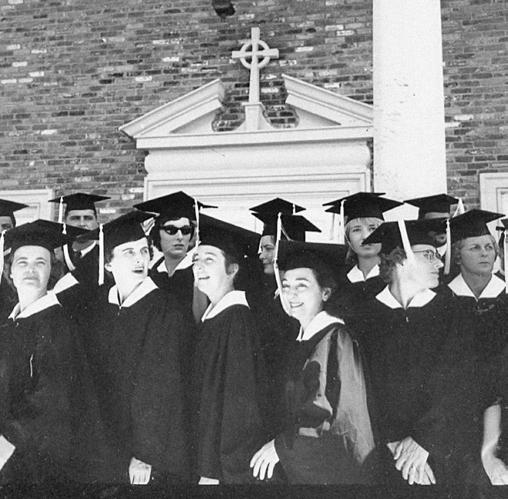
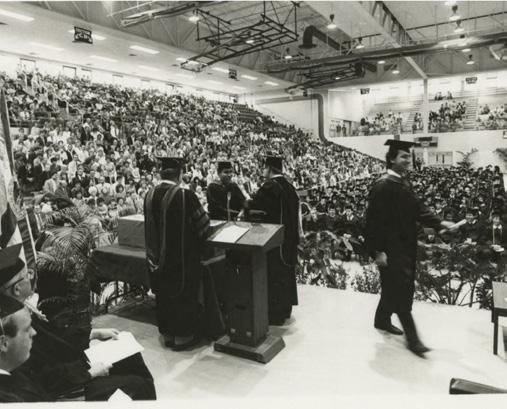
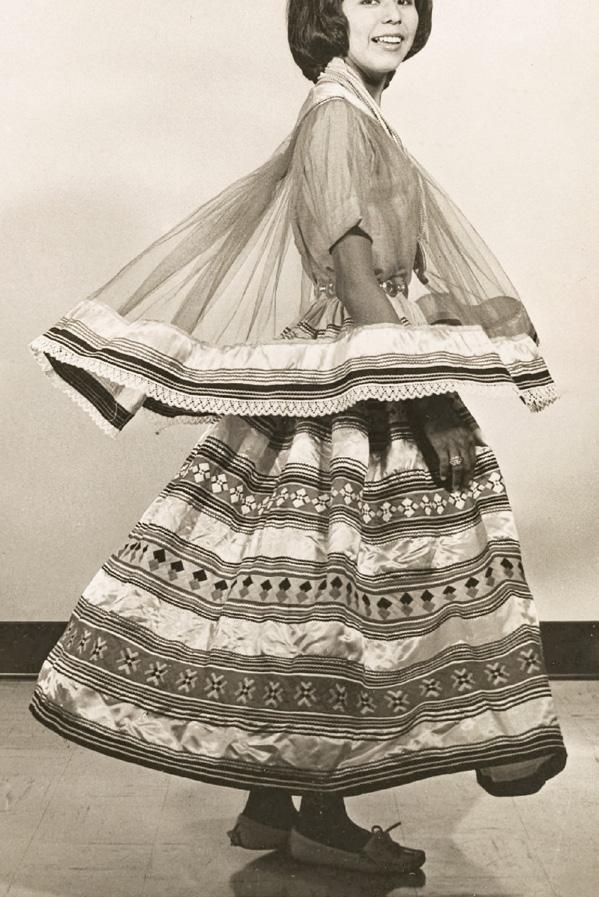 1970 - Louise Jones (Gopher) was the first female member of the Seminole Tribe of Florida to become a university graduate. She was a force for the creation of the tribe’s first charter school, which opened its doors in 2007. She was inducted into the Florida Women’s Hall of Fame and in 2014 she was awarded the FAU President’s Distinguished Service Medallion by University President Emeritus John Kelly.
1965 - Florida Atlantic’s first graduating class.
1984 - Graduates receive diplomas on the Boca Raton campus.
1970 - Louise Jones (Gopher) was the first female member of the Seminole Tribe of Florida to become a university graduate. She was a force for the creation of the tribe’s first charter school, which opened its doors in 2007. She was inducted into the Florida Women’s Hall of Fame and in 2014 she was awarded the FAU President’s Distinguished Service Medallion by University President Emeritus John Kelly.
1965 - Florida Atlantic’s first graduating class.
1984 - Graduates receive diplomas on the Boca Raton campus.

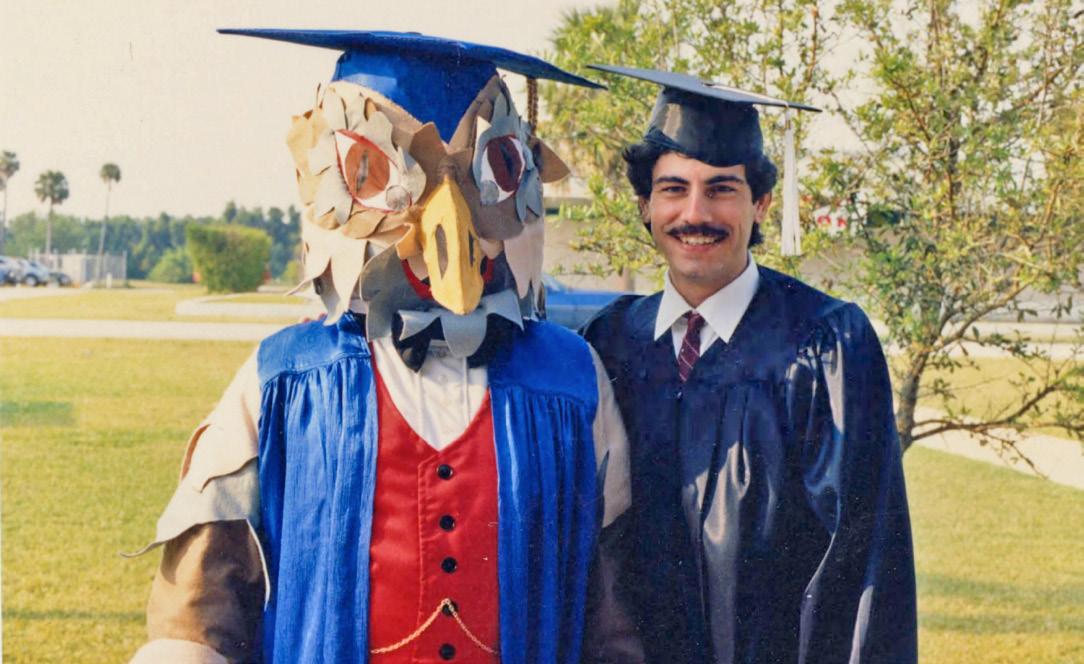 1988 - A Florida Atlantic graduate preparing for her commencement ceremony.
1985 - A graduate posing with the university mascot on the Boca Raton campus.
1988 - A Florida Atlantic graduate preparing for her commencement ceremony.
1985 - A graduate posing with the university mascot on the Boca Raton campus.
Inspiring tomorrow's leaders to enact positive change
Championing equitable outcomes for all people


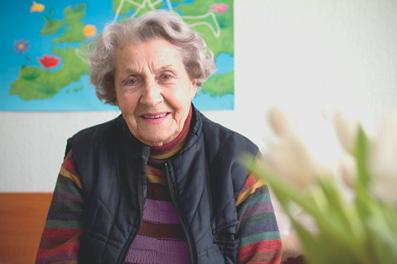



Honoring the dignity & worth of every person

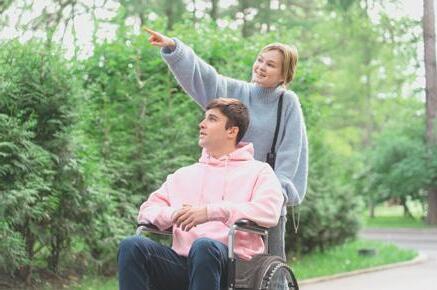
Strengthening resiliency in our communities


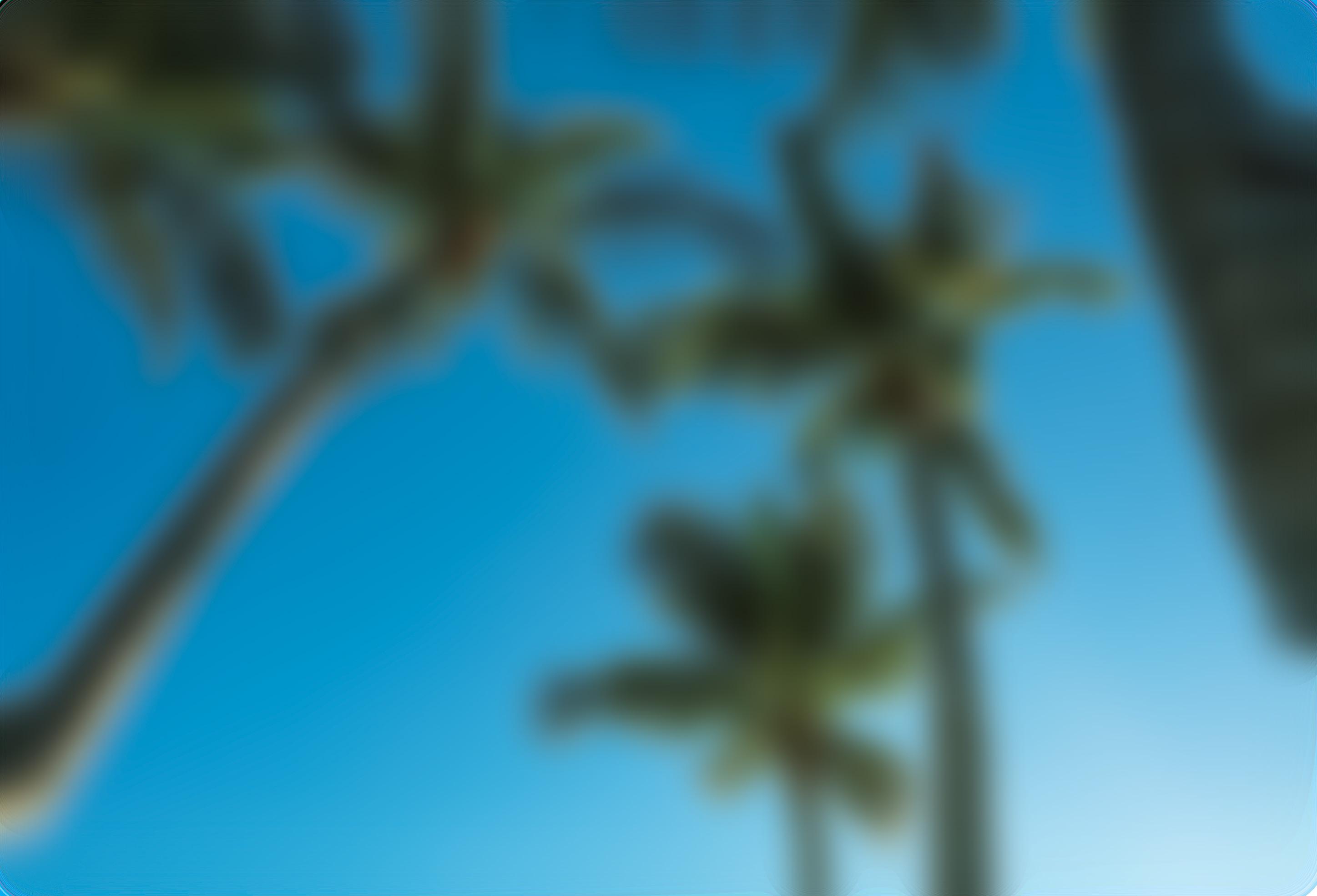


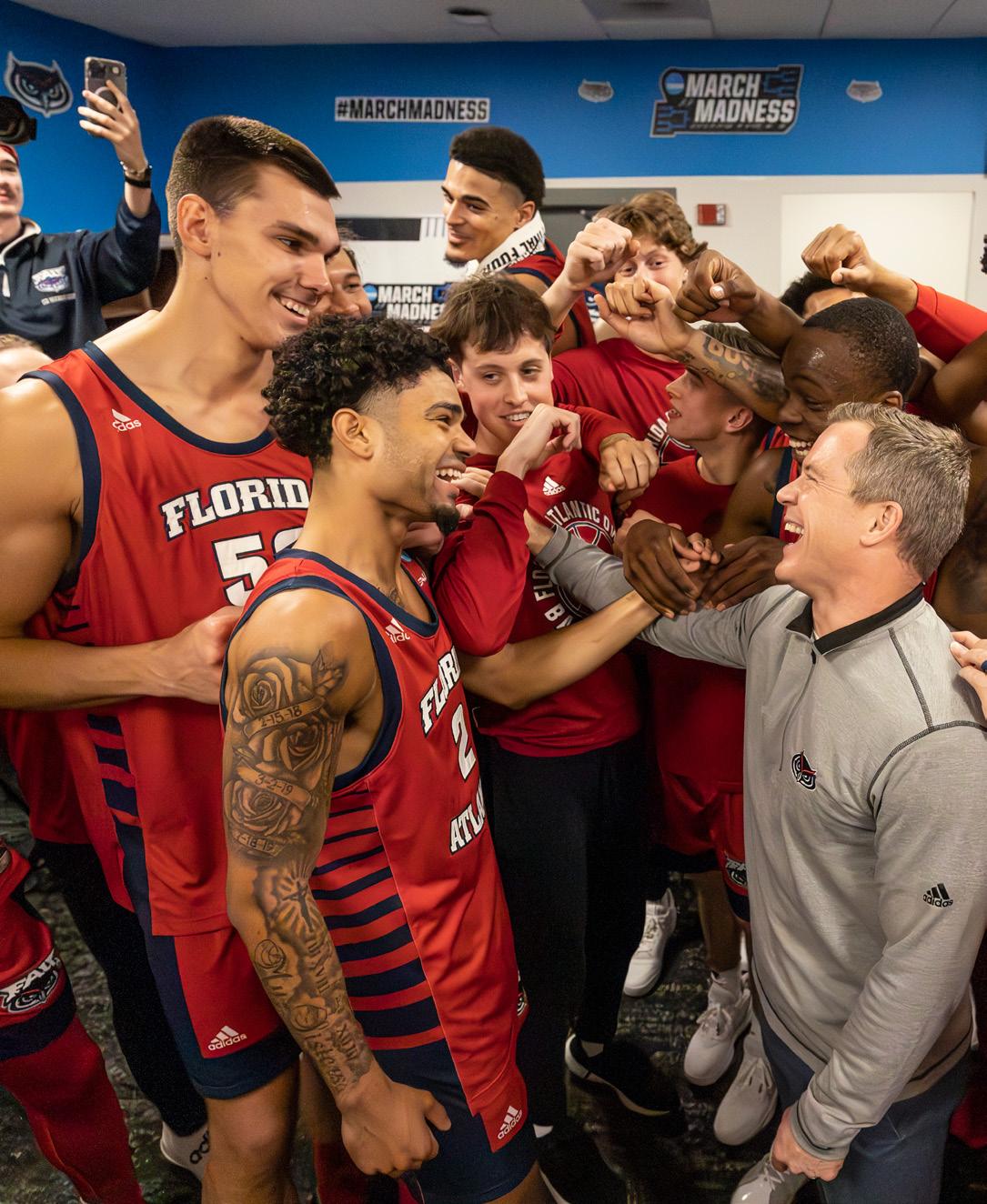
elcome to this special athletic section of Florida Atlantic magazine, highlighting the men’s basketball team’s historic season. This was a season unlike any other, with a schoolrecord 35 wins; the nation’s best record (35-4); a 20-game win streak, tied for the longest in the nation; a perfect 17-0 record at home; winning both the Conference USA regular season and tournament championships; and making it to the Final Four of the NCAA Tournament, becoming only the third No. 9 seed in history to accomplish this feat.

I am incredibly proud of our “Beach Boys,” and I know the entire community shares this pride. The team has inspired a renewed sense of FAU spirit in our students, faculty and staff, alumni, and friends of the university. The last seven regular-season games sold out and NCAA Tournament watch parties quickly reached capacity. The FAU Alumni Association hosted more than 20 Final Four watch parties in Florida, from Fort Lauderdale to Tallahassee, and nine watch parties across the country — the furthest taking place in Utah.
Thank you to everyone who traveled to Frisco, Texas; Columbus, Ohio; New York City and Houston to cheer on the team; as well as those who came out to Baldwin Arena to send off and welcome back the team and coaches from every trip, gathered with their fellow Owls at watch parties and showed their support on social media.
I commend the humble, hardworking young men on this basketball team who throughout the season took every opportunity to praise their coach and lift each other up; and the coaching staff, whose leadership and guidance has been transformational. I hope you enjoy reading about their journey in the following pages.
The 2023-24 season, which begins in November, promises to be just as exciting as this one, as most of our players and coaching staff are returning.
Congratulations again to Head Coach Dusty May, the basketball staff, and of course, our players, on an exceptional season. You’ve made us very proud!

Go Owls!
Stacy Volnick, Ph.D. PresidentThe 1979 NCAA Tournament championship game is widely considered a watershed moment in the history of college basketball. Michigan State University and Magic Johnson defeated Larry Bird’s Indiana State University. The contest essentially launched the sport into a new era of popularity and growth.

To borrow the title from a noteworthy book about that game, it’s When March Went Mad
The Florida Atlantic University men’s basketball program wouldn’t be born for another nine years, and it would be yet another five years before a move to the Division I level in 1993.
In the more than four decades since that 1979 title game, the NCAA Tournament has annually produced stories that have captured the nation’s attention. The 2022-23 Florida Atlantic Owls are now one of those stories.

The Owls did not make a “Cinderella” run through the tournament. They were too good and accomplished too much well before the madness of March to be considered that type of out-of-nowhere team. It was a team that set program records and established program firsts at just about every juncture of the season, culminating with a spot on the sport’s ultimate stage, the Final Four.
And like every great story, it starts at the beginning.
College basketball memories are made in March, when buzzer-beaters deliver a program’s first NCAA Tournament victory; hard-fought triumphs send a mid-major conference team to one of the sport’s greatest venues; and comeback victories under the bright city lights bring a new level of national attention.
However, the foundation for March memories is often built in November. And that’s where the story begins for the 2022-23 FAU men’s basketball team. Before the winning streak and the ranking, the dual championships and March Madness, there was a five-day, fourcity, two-game road swing that propelled the Owls to new heights.
As Hurricane Nicole approached the Southeast region in early November 2022, Head Coach Dusty May and the Owls prepared for the first road trip of the season: two games at Southeastern Conference (SEC) opponents the University of Mississippi and the University of Florida. The storm played havoc with the team’s travel for five days and FAU fell by 13 points in the first game at Ole Miss.
From Oxford, Mississippi to Gainesville, the team detoured through Birmingham, Alabama and Atlanta due to the weather. But a few months later, May would credit those chaotic few days with bringing the players and coaches closer together and setting the stage for the months to follow.

Record: 35-4 (Most wins in school history)

First Elite Eight appearance
First Sweet 16 appearance
First Four Wins in NCAA Tournament
• Defeated No. 8 seed Memphis
• Defeated No. 16 seed Fairleigh Dickinson
• Defeated No. 4 seed Tennessee
• Defeated No. 3 seed Kansas State
Second NCAA Tournament appearance (2002, 2023)
“We bused to Birmingham, practiced there after the [Mississippi] game and then we bused to Atlanta to fly to Gainesville,” said May in mid-season. “But it was great because we spent a lot of time together. It was during a break in classes. We felt like we really shot ourselves in the foot at times [in the loss]. We all took a look in the mirror and re-evaluated what was really important. We learned a lot about ourselves. To be honest, if we were able to win that Ole Miss game and then stay on the road, we probably wouldn’t have had the same edge or determination at Florida.”
On Nov. 14, the Owls went into Gainesville and knocked off the Gators, 76-74, for their first-ever win over Florida and their first over a Power Five conference opponent since 2018. It was considered a breakthrough win for May and the program, with few outside the team possibly envisioning what lay ahead.
“The things we go through, we grow, we get better,” May added. “I’m just proud of how we responded after the Florida game. That could have been a letdown. We came back home against some really good mid-major competition and took care of business.”
The victory over Florida kicked off the longest winning streak in Owls’ history, a run that would last more than 11 weeks, land the team in the national rankings for the first time and not end until early February. Victories over Bryant and Detroit Mercy in the Paradise Invitational, followed by a road triumph at Albany and a blowout home win over South Alabama had FAU at 6-1 entering December.
The Owls were never threatened in four December non-conference games, winning by an average of nearly 25 points. The Conference USA schedule began with a 26-point blowout of Florida International University. And with buzz building around the team’s hot start, FAU closed the calendar year with a hard-fought 50-46 win at North Texas.

Four more wins to open January, including a second four-point victory over North Texas in Boca Raton — and with the winning streak at 15 — secured FAU’s first ever national ranking at No. 24 in the Associated Press poll.
It was during this time that the nowpopular “Beach Boys” moniker was born. In mid-January, a rival team’s coach referred to the Owls’ style of play as “loose and free” due to their “beach mentality.” While some considered it to be a backhanded compliment, the players ultimately embraced the reference and started referring to themselves as the Beach Boys.
The Owls would rise as high as No. 19 in the subsequent weeks and have the nation’s longest winning streak (20) before the run ended on Feb. 2 at the University at Alabama-Birmingham.

Following the UAB loss, FAU won seven of its final eight regular-season games. On Feb. 25, Senior Day at Eleanor R. Baldwin Arena in front of the seventh straight sellout crowd, the Owls completed a perfect 17-0 home schedule and secured the C-USA regular season championship with a resounding victory over UTEP. They accepted the trophy underneath a shower of confetti.
Two weeks later FAU added a second trophy to its collection with three wins at the C-USA tournament in Frisco, Texas. After beating Western Kentucky University in the quarterfinals and surviving a scare from Middle Tennessee in the semifinals, the Owls raced by UAB, 78-56, for the championship and earned an automatic berth in the NCAA Tournament for only the second time in program history. The first, in 2002, resulted in a first-round loss to Alabama after winning the Atlantic Sun Conference tournament.
The Big Dance. March Madness. By any nickname, the NCAA Division I Men’s Basketball Tournament is a sporting event that captures the nation’s attention each spring as teams from big universities and small colleges seek their “One Shining Moment” that will be remembered for decades.

As CBS revealed the NCAA bracket on what is known as “Selection Sunday,” the cameras captured the reaction from Baldwin Arena as the Owls, along with several hundred fans, celebrated FAU’s return to the NCAA Tournament for the first time in 21 years. FAU was awarded a No. 9 seed in the East Region and sent to Columbus, Ohio, for a first-round game against the No. 8 seed University of Memphis.
And the Owls would deliver a forever March moment in their first game.
Inside Columbus’ Nationwide Arena, the back-and-forth battle with the Tigers found FAU trailing by one point with five seconds remaining. Freshman guard Nick Boyd took a baseline inbounds pass in the corner, drove into the lane and put in a layup with just 2.5 seconds to go. Memphis was unable to get off a desperation shot before the final buzzer sounded, giving FAU the first NCAA Tournament win in program history by a score of 66-65.
“I don’t even know how to really describe the moment,” Boyd said. “I caught it in the corner. I was going to shoot the 3, and [Memphis defender Elijah McCadden] jumped for the shot fake. [FAU center Vladislav Goldin] had a great seal that
HISTORIC 2022-23 SEASON
First National Ranking: peaked at No. 19 in Associated Press poll and No. 20 in USA Today Coaches Poll, finished the season at No. 5 in USA Today Coaches Poll
First Conference USA Regular-Season Championship (18-2 record)
First Conference USA Tournament Championship
20-game Winning Streak (longest in program history, doubling the previous record of 10)
17-0 Home Record at Eleanor R. Baldwin Arena (currently on 18-game home winning streak)
allowed me to get to the rim. I just thought about finishing no matter what.”
Two nights later, in a match-up with No. 16 seed Fairleigh Dickinson University — which shocked No. 1 seed Purdue in the first round — FAU guard Johnell Davis put forth one of the most memorable performances in NCAA Tournament history.



Davis finished with 29 points, a careerhigh 12 rebounds, five assists and five steals, propelling the Owls past Fairleigh Dickinson, 78-70, and into the Sweet 16. Davis became the first player to total at least 25 points, 10 rebounds, five assists and five steals in an NCAA game since steals became an official stat in 1986.
“I really don’t care about the stats. My team just kept feeding me the ball. I put the work in and it shows in the box score,” said Davis, a sophomore who played in
every game during the season. “My coach believed in me, the team believed in me. I just stayed patient and waited for my turn. I can’t really explain that moment.”
Only 16 teams remained in the NCAA Tournament.
MEN’S BASKETBALL TEAM’S HISTORIC 2022-23 SEASON


Dusty May named CBS Sports College Basketball Coach of the Year, Conference USA Coach of the Year and National Association of Basketball Coaches (NABC)

All-District 17 Coach of the Year
Johnell Davis named Conference USA Sixth Player of the Year, C-USA All-Tournament Team, First Team AllConference USA and NABC All-District First Team

Alijah Martin named to NCAA Tournament First Team, Conference USA First Team, NABC All-District Second Team, as well as Conference USA Tournament Most Valuable Player



Vladislav Goldin named to Third Team All-Conference USA

Rural Indiana in America’s heartland. Madison Square Garden in the heart of New York City.

Legends from towns like French Lick and Heltonville often learn the game on dusty courts shooting at baskets mounted on farmhouses in quiet, remote locations.
Legends from city courts like Rucker Park and West Fourth Street often learn the game on asphalt playgrounds shooting at chain nets underneath subway platforms.
Two parts of the country diametrically opposed in so many ways yet connected by a shared love of basketball. The Hoosier State. The City Game. And for two nights during the 2023 NCAA Tournament,

Indiana basketball and New York City basketball shared a specific connection … Florida Atlantic Head Coach Dusty May.

A product of Eastern Greene High School in Bloomfield, Indiana, and a student manager at the University of Indiana in the last years of Bob Knight’s legendary tenure, May took the Owls on a glorious run through the 2022-23 college basketball season. And the run included the opportunity for FAU to play for the first time, and triumph, in the venue dubbed the World’s Most Famous Arena.
“To walk the sidelines and coach at Madison Square Garden is a dream come true and something that I never imagined that I would be doing,” May said.
It wasn’t a dream. In fact, it was quite real that as the clock approached midnight on the evening of March 23, chants of “F-A-U, F-A-U” reverberated throughout the Garden.

The 46-year-old May transformed the FAU men’s basketball program. After inheriting a team that had gone 50-105 across the previous five seasons, the Owls posted five straight winning campaigns (101-60) under his leadership. He was named the 2022-23 CBS Sports Coach of the Year, C-USA Coach of the Year and a semifinalist for the national Naismith Men’s Basketball Coach of the Year Award.


Prior to arriving in Boca Raton in May 2018, May spent seven seasons on Mike White’s coaching staff, first at Louisiana Tech University for four and then with Florida for three. White is the older brother of Brian White, who was named FAU’s vice president and director of athletics in March 2018.


May was a student manager at Indiana from 1996-2000. Thus, his coaching career essentially traces back to the fiery Hoosiers leader, Knight, who won three national championships with the storied program but was equally as known for his controversial temper and clashes with media and students as he was for his innovation and accomplishments.
“You volunteer 40 to 80 hours a week just to learn from a legend, an expert coach, expert teacher. I take something daily from what I learned from that experience,” said May in referring to his time under Knight. “But the
entire journey has hopefully prepared me to be in the position I’m in.”
After graduating from Indiana, he began his professional career as an administrative assistant/video coordinator at the University of Southern California (2000-02) and returned to his alma mater in an administrative role for three seasons before taking his first step as an assistant coach with Eastern Michigan University (2005-06). He also served as an assistant at Murray State University (2006-07) and UAB (2007-09).
Five years into his head coaching tenure, May is the Owls’ all-time winningest coach who put Florida Atlantic into a spotlight previously unknown to the university.
To walk the sidelines and coach at Madison Square Garden is a dream come true and something that I never imagined that I would be doing.”
– Head Coach Dusty May
The national media exclaimed “From Boca to Broadway” as the Owls advanced to New York. And more than four months after the November road trip that essentially jumpstarted the historic season, they once again readied for another SEC opponent, the No. 4 seed University of Tennessee.
Down five points after a sluggish opening 20 minutes and trailing by six as the clock ticked under 13 minutes remaining, FAU suddenly found its game. Back-to-back 3-pointers by “Mr. FAU” Michael Forrest, the second coming just past the midway point of the second half, gave the Owls a lead they would hold the rest of the way.
Forrest, the only senior on the roster and May’s first recruit who helped change the perception of Owls basketball, scored eight points in the decisive 18-2 run and chants of “F-A-U, F-A-U” began bouncing off the famed pinwheel roof of Madison Square Garden. FAU held at least a five-point lead until the buzzer and became only the seventh No. 9 seed to reach the Elite Eight, defeating Tennessee, 62-55.

“We’ve got a group of guys that no matter what night it is, somebody is going to step up and make a big play,” Forrest said.
“Everybody stays together through the ups and downs. That just goes to show the group of guys that we have and all
the work everybody puts in. It could be anybody’s night.”
When asked how it sounded to hear ‘FAU is in the Elite Eight,’ Boyd responded, “It sounds just right.”
Two nights later, the Owls once again found themselves trailing in the second half. A step-back 3-pointer by Markquis Nowell gave Kansas State a six-point lead with eight-and-a-half minutes to play and it appeared that the third-seeded Wildcats had taken control of the game. But Goldin’s hook shot just seconds later ignited a 15-1 FAU run that changed the atmosphere inside The Garden.
Brandon Weatherspoon followed with a 3-pointer and a dunk by Goldin put the Owls ahead for good. Alijah Martin hit a 3-pointer with three minutes remaining, added two free throws to push the lead to eight and college basketball’s promised land was within reach. After the game, several of the players pointed to defense and the team’s poise for FAU’s ability to change momentum late in the contest for the second time in three days.
“Just slow down and really take care of the ball and be decisive when you penetrate,” said Martin when asked about the 15-1 run. “Also, our defensive mindset and limiting them to one possession.”
“A lot of times people might try to hit home runs to close that lead, and we don’t really get rattled in situations where we’re down. We’ve been in too many of them,” added player Bryan Greenlee. “So just taking it one possession at a time and focus on getting stops.”
Kansas State battled back within a point twice in the last half minute, but Forrest

went 4-for-4 from the foul line to keep FAU ahead. The Wildcats raced up the court in the final seconds but were unable to get off a desperation shot, sending the Owls into a celebration as the buzzer sounded. The 79-76 win sent FAU to the first Final Four in school history as only the third No. 9 seed to reach the sport’s pinnacle event (joining Wichita State University in 2013 and the University of Pennsylvania in 1979).

“Florida Atlantic is a new university. It’s been booming before I got here,” May said. “One of the reasons I took [the job] was because it was the right place at the right time, and it’s growing exponentially. We’ve just never had that moment as a university.”

Until now.
As fans walked out of the Garden and glanced slightly east through the Manhattan streets, they were struck by a previously unimaginable site … the Empire State Building was lit in FAU red and blue in honor of the East Region champion Florida Atlantic Owls.


We’ve got a group of guys that no matter what night it is, somebody is going to step up and make a big play.”
– Michael Forrest
NBC’s “TODAY” show and ESPN’s “SportsCenter” profiled the Owls basketball team throughout the NCAA Tournament, just part of an unprecedented three weeks of attention for not only the team and athletic department but the entire university.

“We describe the university a lot as an upstart stock,” Brian White told The New York Times in the days leading up to the
The FAU Alumni Association hosted 55 watch parties and on-location, pre-game events during the NCAA Tournament. These events were attended by more than 5,200 alumni and fans.




Final Four. “It’s crazy how young we are, not only as an athletic department, but as a university.”
White and FAU President Stacy Volnick joined members of the spirit squad and Owlsley to ring the closing bell at the New York Stock Exchange on March 22. A few miles north, fans gathered to take pictures in front of the Florida Atlantic digital billboards in Times Square.

From Mizner Park in Boca Raton to the Miami Worldcenter skyscraper, digital displays were captured in person or with cell phone cameras and shared across social media. The demand for watch parties throughout Florida increased each weekend of the tournament. For the Saturday night of the Final Four, the FAU Alumni Association planned more than 20 parties throughout the state, including well outside FAU’s South Florida region in Orlando, Jacksonville, Tallahassee and Tampa. There were even nine watch parties beyond Florida, the furthest in Utah.
“One of the great things about the team’s success is the tremendous attention it’s brought to the entire university,” Volnick said. “It’s given us a bigger platform to talk about all of the important work we’re doing outside athletics, from our groundbreaking research to our extensive efforts to support underserved students on their path to a degree.
I cannot overstate how incredibly proud I am of this team and I know the entire FAU community shares this pride. The team has inspired a renewed sense of spirit in our students, faculty and staff, alumni, and friends of the university.”



One of the great things about the team’s success is the tremendous attention it’s brought to the entire university.”
– FAU President Stacy Volnick
There are 363 Division I men’s basketball teams and the season had been reduced to the last four.
Returning to the Boca Raton campus after the Elite Eight victory, the Owls were greeted by several hundred fans holding lit cell phones to illuminate the areas outside Baldwin Arena. And a few days later, an even larger crowd would gather in the early morning hours to send the team off to one of the biggest events in sports. Departing from an arena with a capacity of 2,900, FAU’s next stop, the Final Four, would be at Houston’s NRG Stadium, home of the NFL’s Houston Texans, in front of more than 70,000 fans.
“When we landed in Houston, it was kind of crazy,” Weatherspoon said. “Seeing the [FAUbranded] bus and the [national championship] trophy and what they had laid out for us, it really hit me. We were in the Final Four. It’s very special. Ten, 15 years from now we’ll come back to Boca, knowing we’ve been to the Final Four. As a group, when we first started, this wasn’t the goal.”
The heartbreaking 72-71 loss to fifth-seeded South Region champion San Diego State University in the national semifinals might have ended a season, but for many associated with Florida Atlantic, the whole season felt more like a launching point into the future. FAU owned the national spotlight like never before, and the athletics footprint will continue to grow with a move to the American Athletic Conference for the 2023-24 academic year.
As for the men’s basketball team, the Owls are expected to return a majority of a roster that posted the nation’s best record at 35-4, the most victories by a C-USA school in league history. After the Final Four, May agreed to a 10-year contract extension to remain as head coach. And improvements are being planned for Baldwin Arena, which will need to make room in its rafters for several new banners in November … “2023 Final Four” being the most prominent.


“These [players and coaches] have created memories and a legacy for a lifetime,” May said. “People will be talking about this group for the next 50 to 100 years.”

People will be talking about this group for the next 50 to 100 years.”
– Head Coach Dusty May
The Florida Atlantic men’s basketball team played its first game on Nov. 18, 1988, against Palm Beach Atlantic. In 2002, the team made its first NCAA Tournament appearance as a member of the Atlantic Sun Conference. The Owls were the No. 15 seed in the South Region. Though they hung tight throughout the game, they fell to No. 2 seed Alabama 86–78.





The FAU men’s basketball team received the key to the City of Boca Raton following a season that led the team to the Final Four for the first time.


Longtime friend of the university and Boca Raton philanthropist
Eleanor R. Baldwin recently made a $7.5 million gift to FAU Athletics to renovate and improve the basketball and volleyball facility. In recognition of her generosity, the facility is now named the Eleanor R. Baldwin Arena.


“I am so proud of all that FAU has accomplished in our wonderful Boca Raton community and so grateful that I’m able to continue making a big impact on this incredible institution,” Baldwin said. “I love being able to support and enhance the Eleanor R. Baldwin Arena for our student-athletes, coaches and the community.”
Baldwin’s total philanthropic support of FAU is now more than $10 million and her name is widely known at the university. More than 20 years ago, she made a seven-figure gift to construct a president’s residence on the Boca Raton campus, which was named the Eleanor R. Baldwin House in her honor. FAU Athletics also is home to the Eleanor R. Baldwin History and Tradition Hall in the Schmidt Family Complex for Academic and Athletic Excellence, as well as the Eleanor R. Baldwin President’s Suite at FAU Stadium.
“Eleanor has generously supported so many projects and initiatives at FAU and throughout the community, and we are so incredibly grateful to her for this gift,” said Brian White, FAU vice president and director of athletics. “We cannot thank her enough for this support, which will impact the lives of so many Owl studentathletes, coaches, staff and community members who will utilize the Eleanor R. Baldwin Arena.”

the Men’s Basketball Team’s Historic Season
